On the banks of the river Bernesga, an emblematic stop on the Camino de Santiago, lies this beautiful city with thousands of years of history.
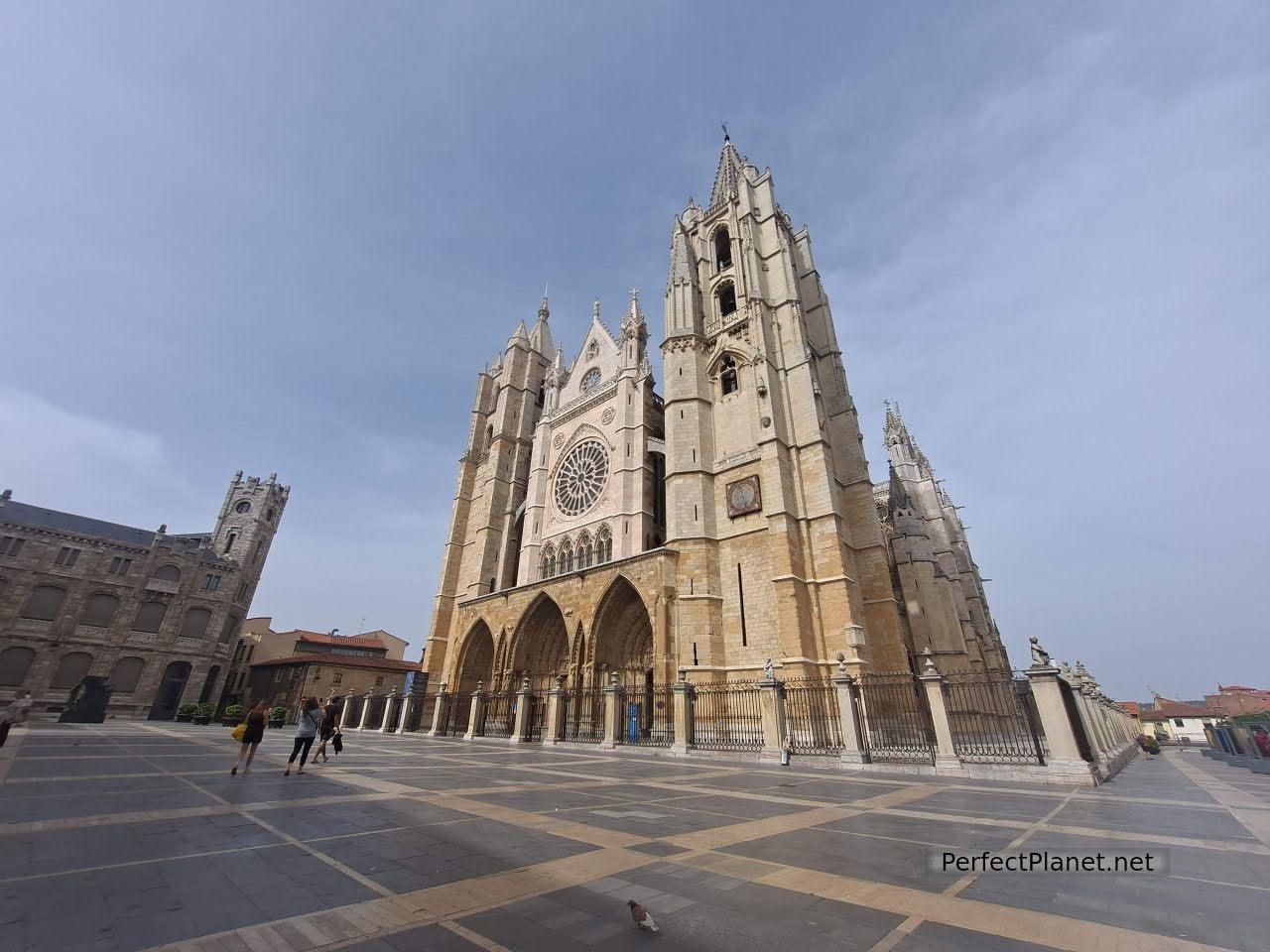
Cathedral
The capital of León stands out not only for its artistic heritage but also for its gastronomy. Perfect for a getaway, its famous tapas and sausages are a reference point and the festive atmosphere of its streets is concentrated in the historic centre in the Húmedo and Romántico neighbourhoods.
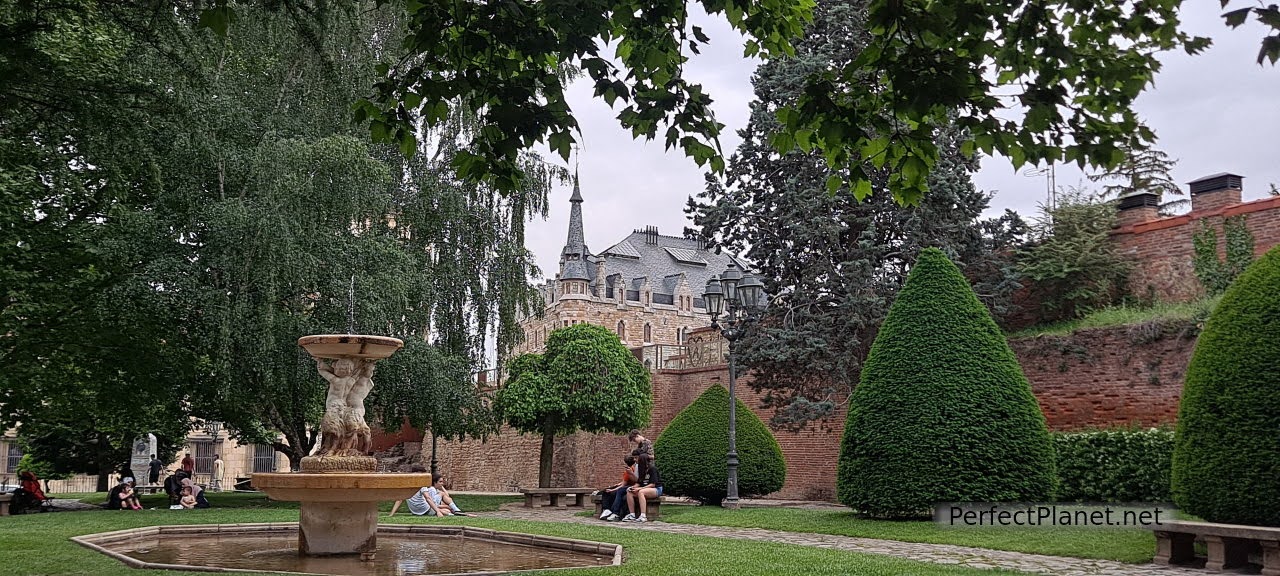
Cid Park
There are hundreds of reasons to visit this city and of course there are some you can't miss. Not to be missed:
7. Húmedo and Romantic quarters
How to get here
León has a small airport located about six kilometres from the city centre. Although there is no direct bus service from the airport to the city centre, a taxi can cost around €30.
You can also get to León by train, bus (ALSA) or your own car. There are several car parks close to the centre, and free parking spaces in the MUSAC and Parador areas.
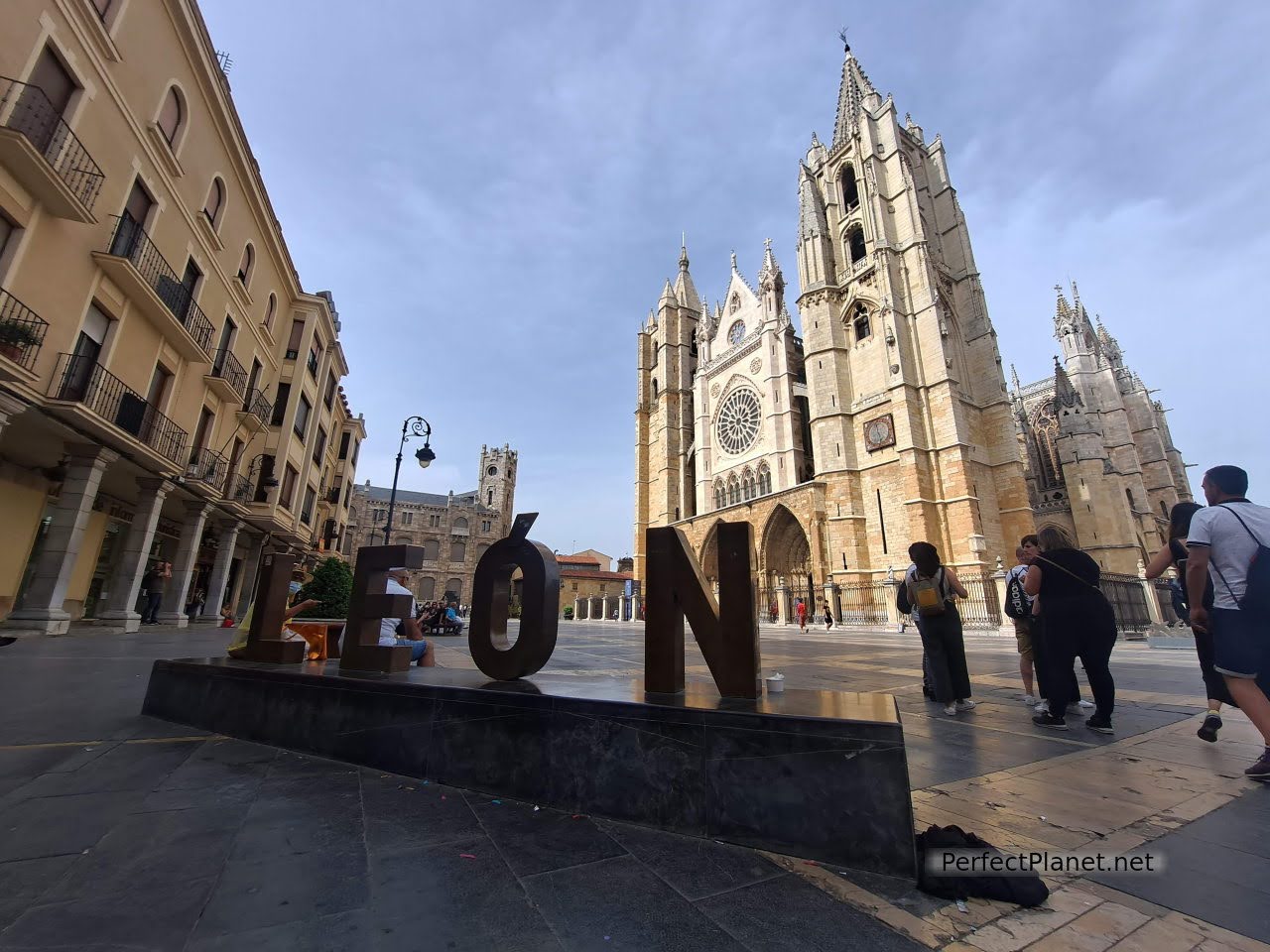
León
Accommodation
There is a wide range of hotels in León, being an obligatory stop on the Camino de Santiago, there are many hostels and cheap accommodation. We always use Booking. Remember, if you go by private car you will probably have to park (for free) about 10 or 15 minutes walk from your accommodation.
We stayed at EC Hostel, which is cheap but about three kilometres from the centre.
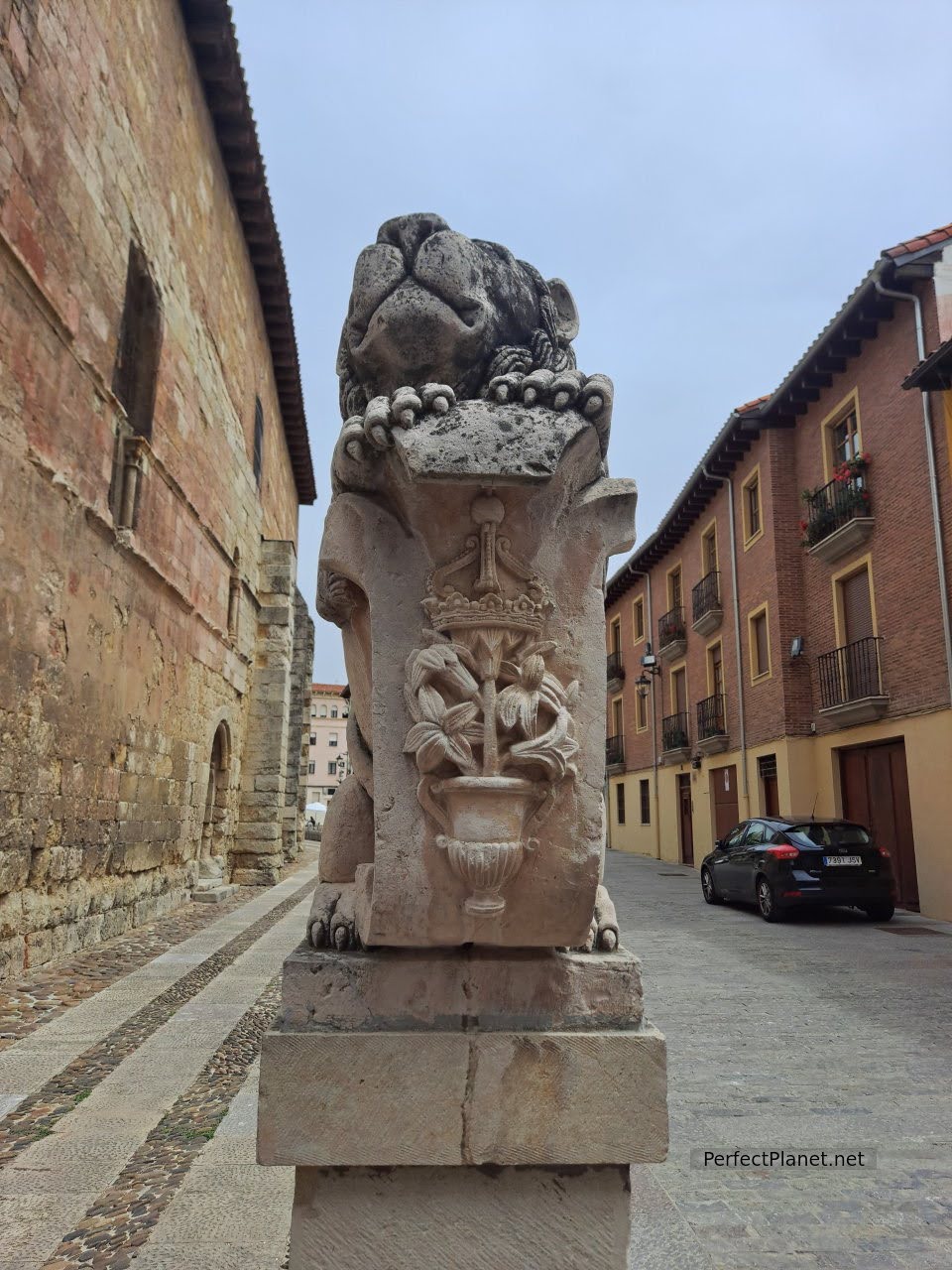
León
Gastronomy
León is undoubtedly a reference point, not only for its tapas but also for its good food. Sausages, black pudding, botillo, cheeses, potatoes in all their versions and delicious wines are some of the highlights.
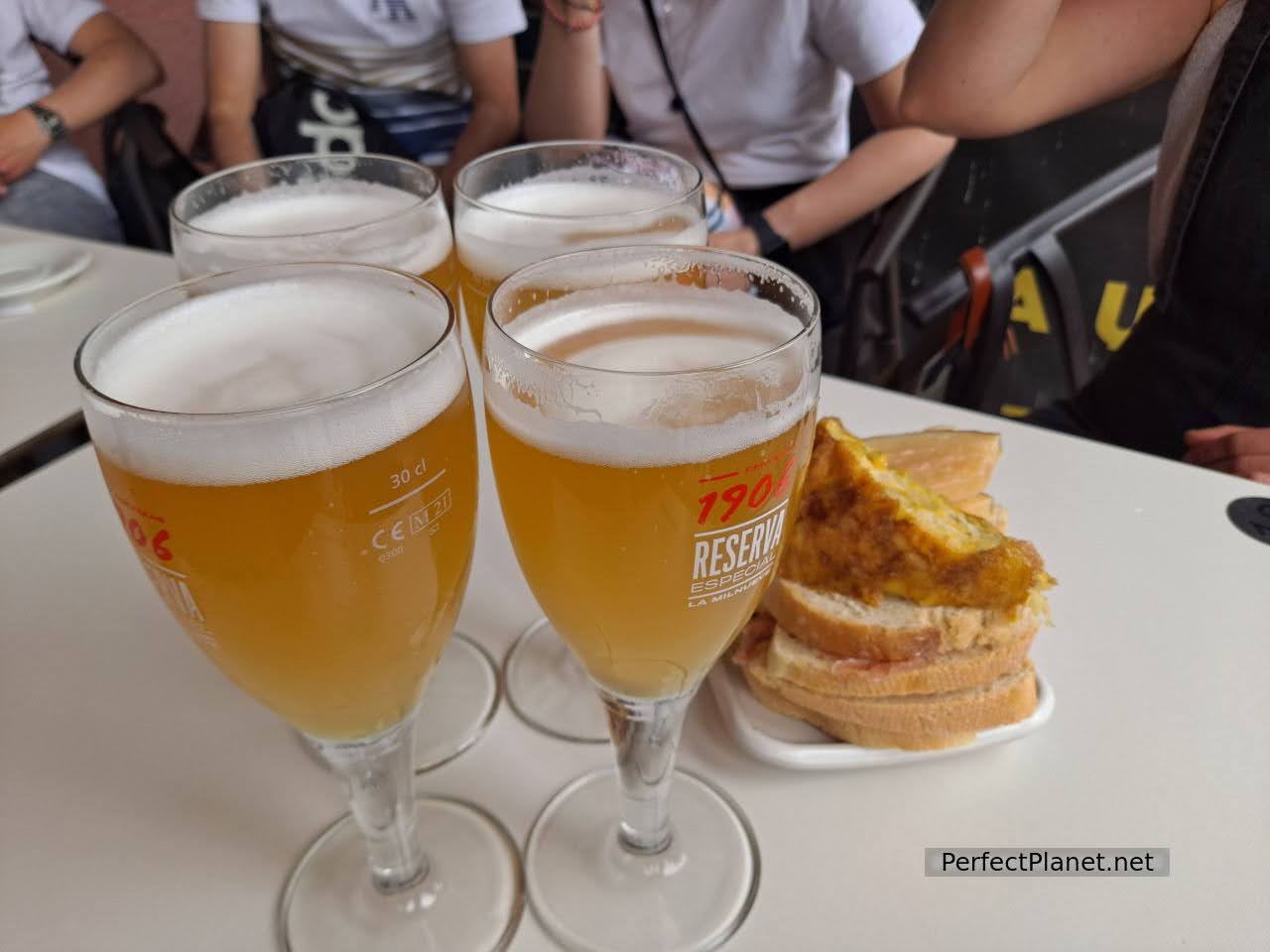
Tapas
De tapasDe Tapas
The Húmedo and Romantic quarters are the best known for excellent tapas.
The Húmedo neighbourhood is one of the most important tapas areas in Spain, and has its origins in the love of "getting wet" inside while having tapas.
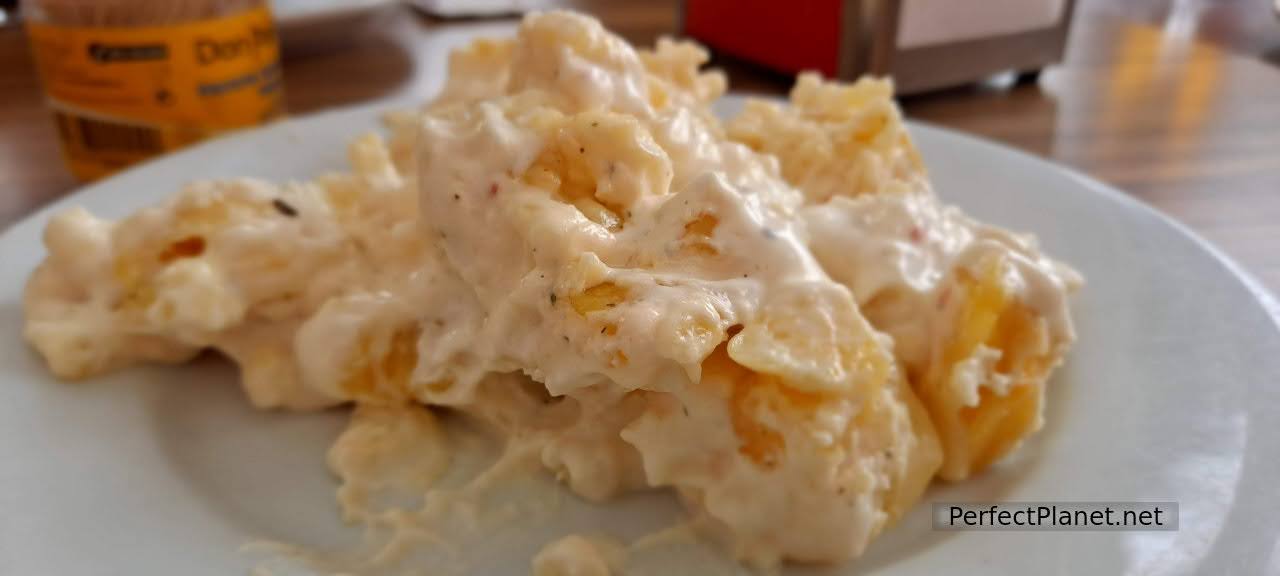
Potatos with garlic
In this neighbourhood you can't miss the typical potatoes with paprika at Flechazo, croquettes (even pizza flavoured) at the Rebote bar, mushrooms at El Pote or Leonese black pudding at La Bicha. If you want to enjoy the Leonese nightlife, the pub La Galocha and the Delicatessen until late, and if you are more of a rocker, the pub Pinocho. In the Plaza Mayor the pub El Lobo or Que Trabaje Rita.
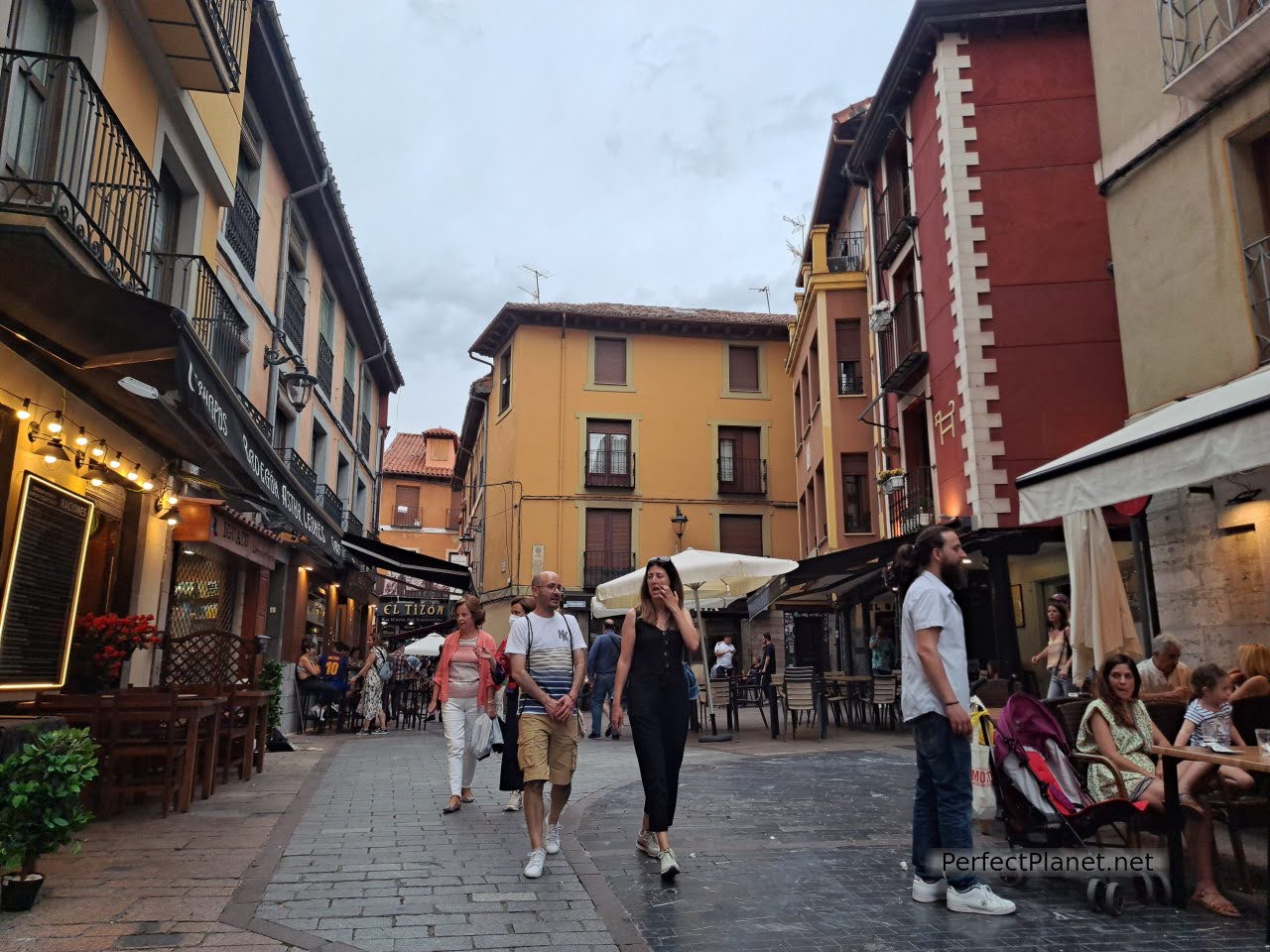
Húmedo quarter
If you visit the city at Easter, be sure to try its delicious lemonade, similar to sangria but with a Leonese accent.
Wine is another delicacy not to be missed, the Prieto Picudo variety is perfect to accompany a good meal.
Romantic Quarter. Like the Húmedo, the Romántic is another wonderful option for a stroll in León.
If you feel like sitting down for a meal, the Ezequiel restaurant on Calle Ancha offers traditional food with a wide variety of local products, such as sausages or good beans.
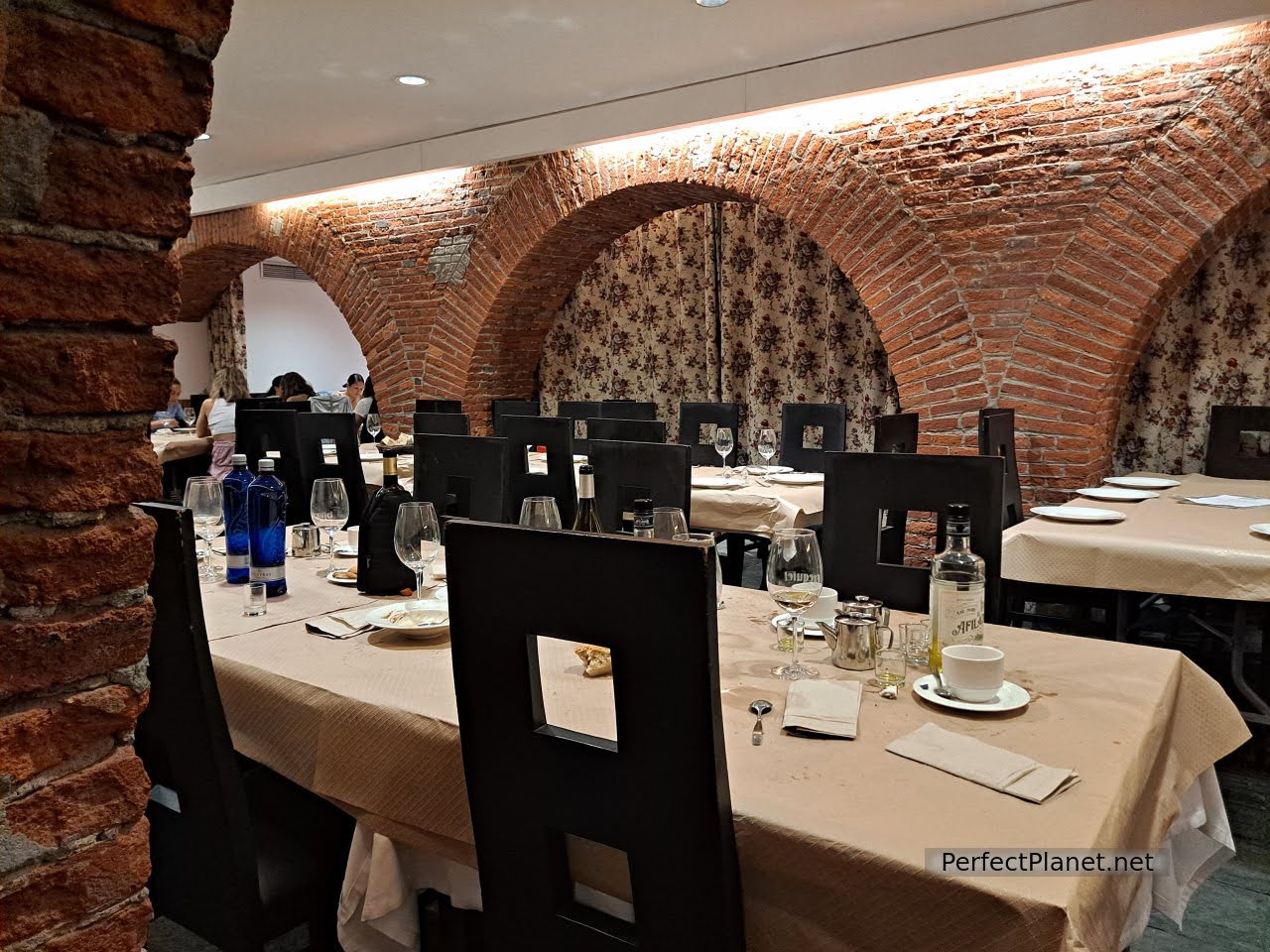
Ezequiel
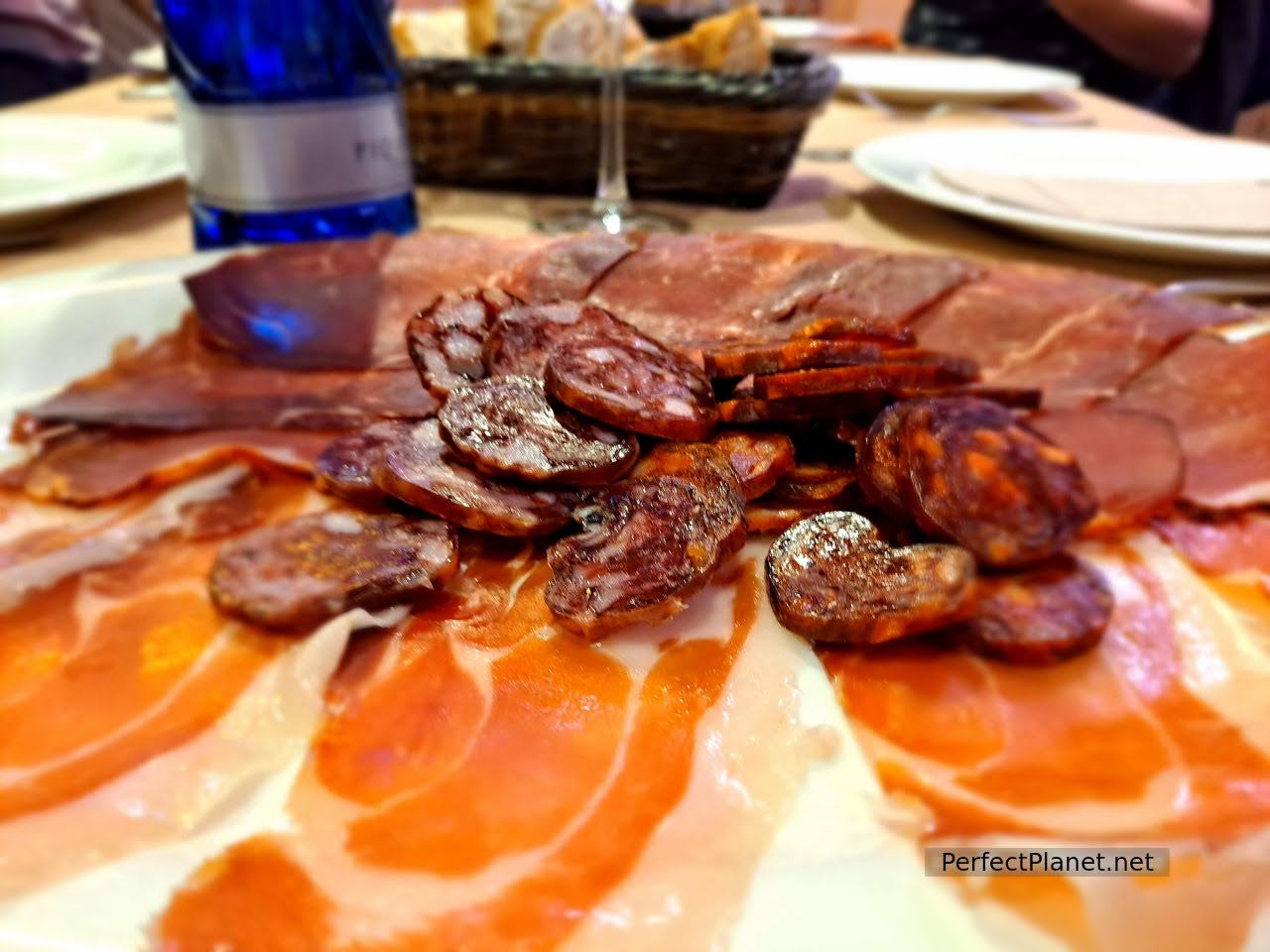
Embutidos
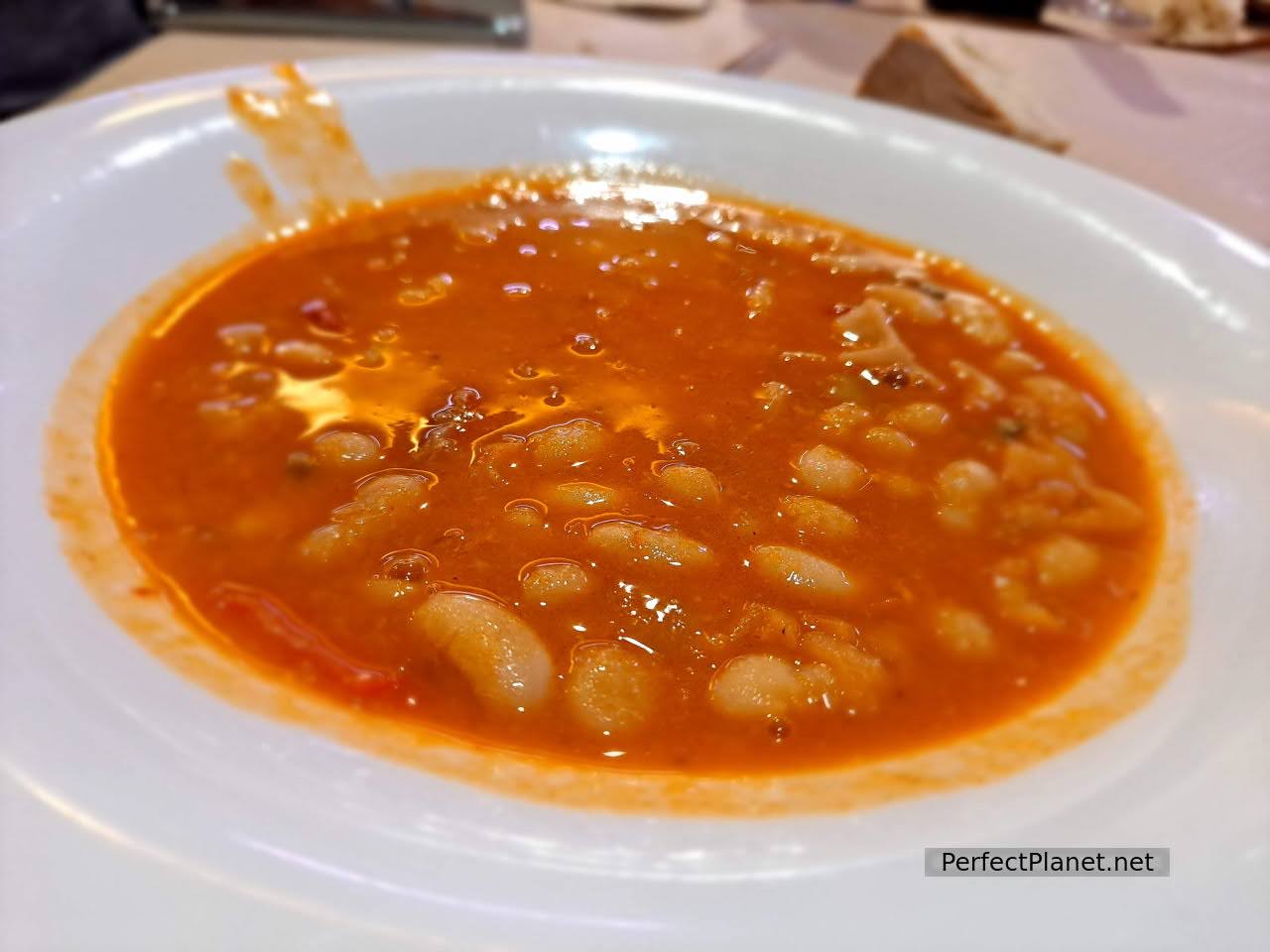
Beans with squid
El Patio is another reference point, as well as being a beautiful place to eat very well, we recommend the stuffed breads, impressive.
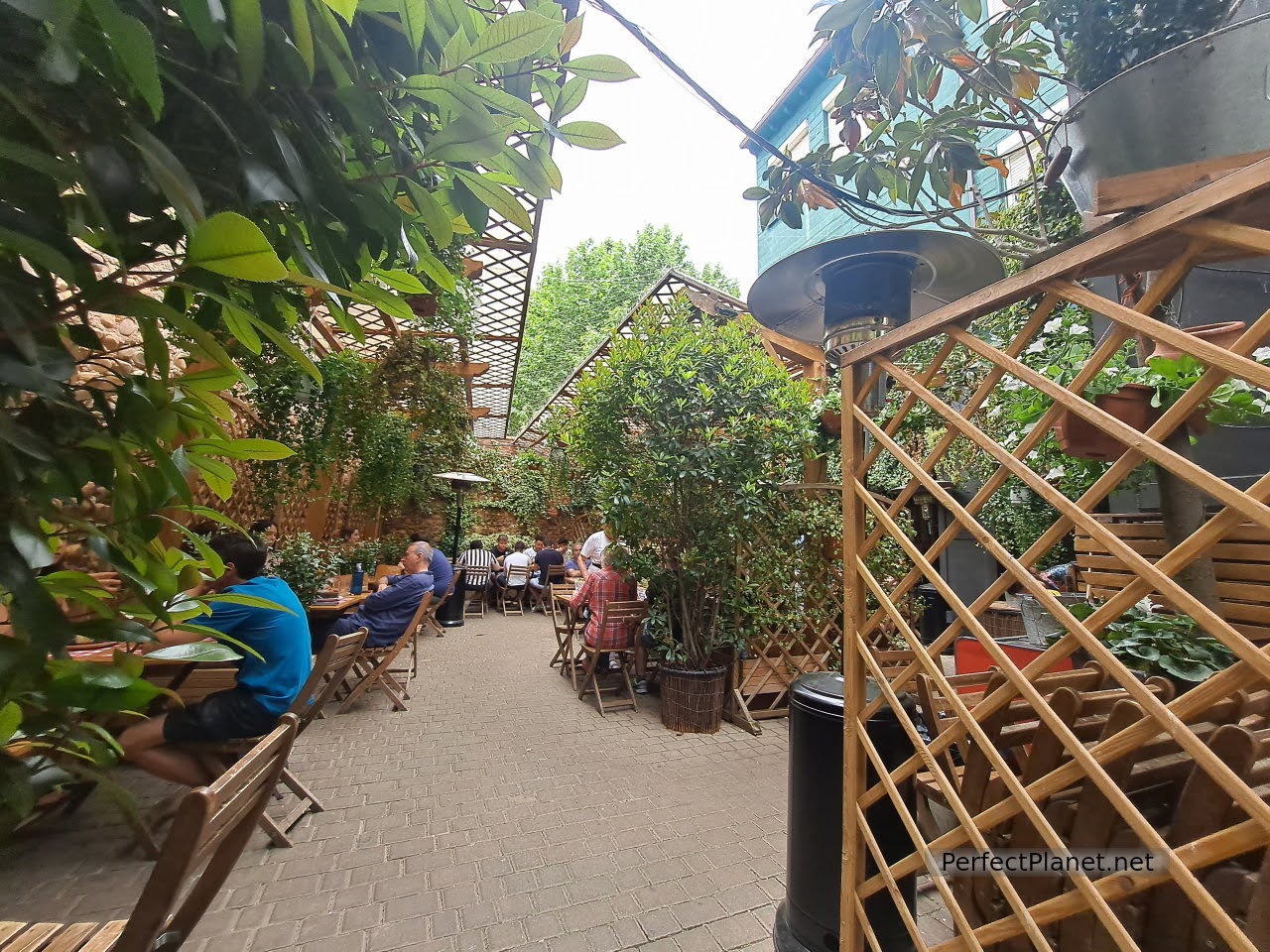
El Patio
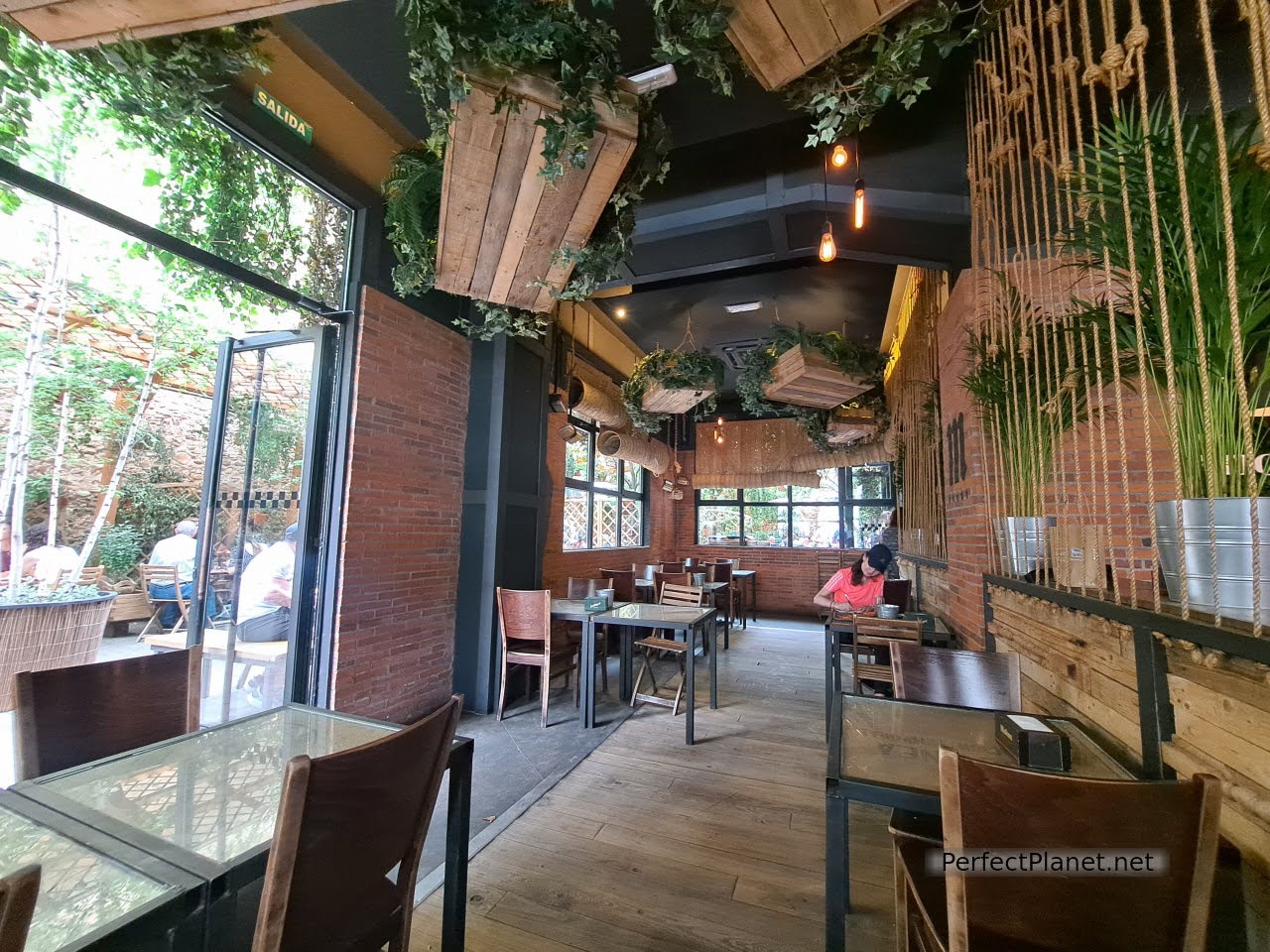
El Patio
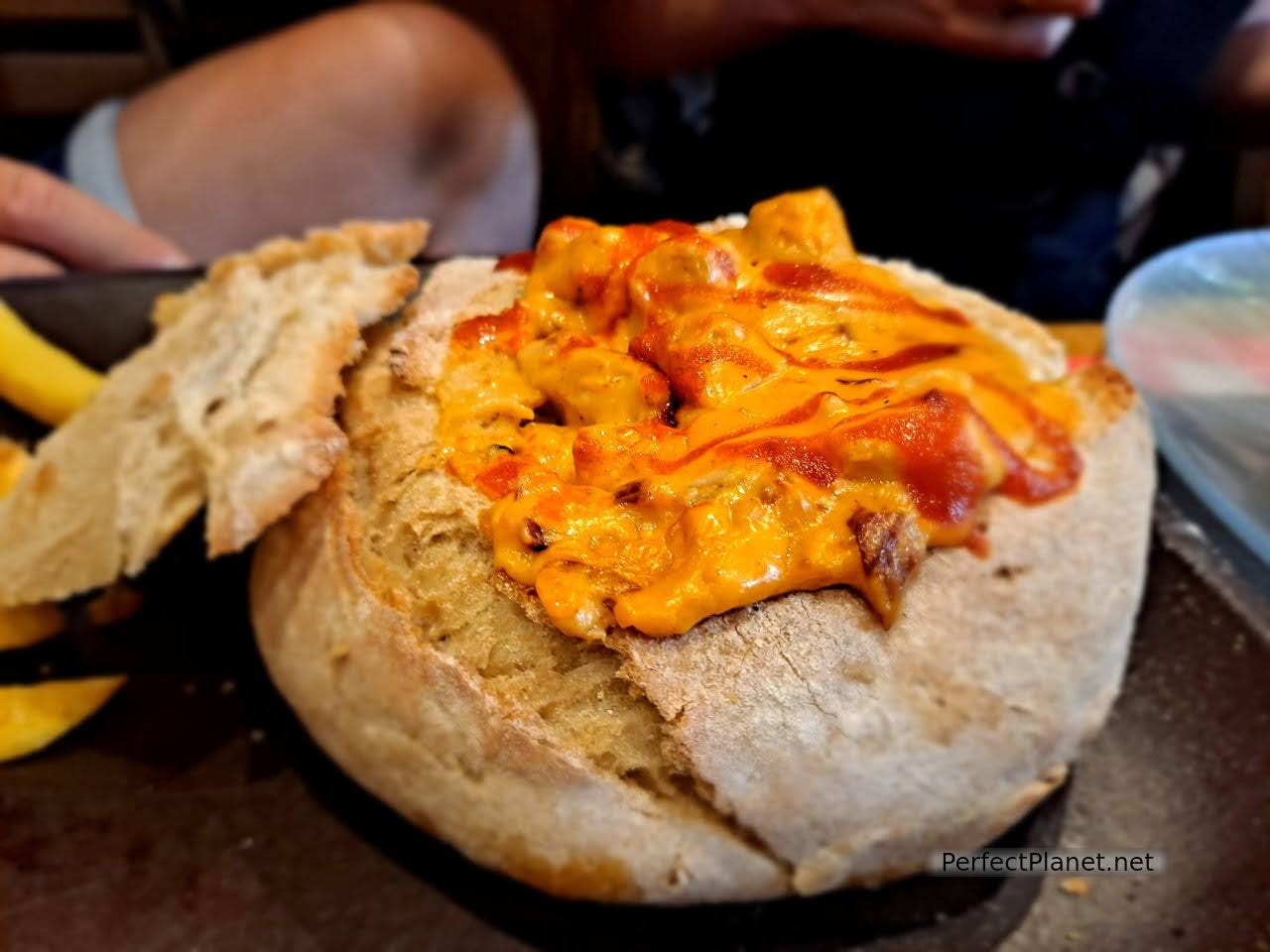
Bread
If you prefer tapas, the Romántico or the bar la Trébede has a spectacular picadillo. Malas Calles in Plaza del Cid is also a good option.
We highlight a few establishments but none of them disappoint, the truth is that this city is amazing!
Near the Convent of San Marcos we recommend Lonja restaurant for breakfast, the flea that accompanies the coffee is almost half a sandwich! and Aysha's corner for a drink.
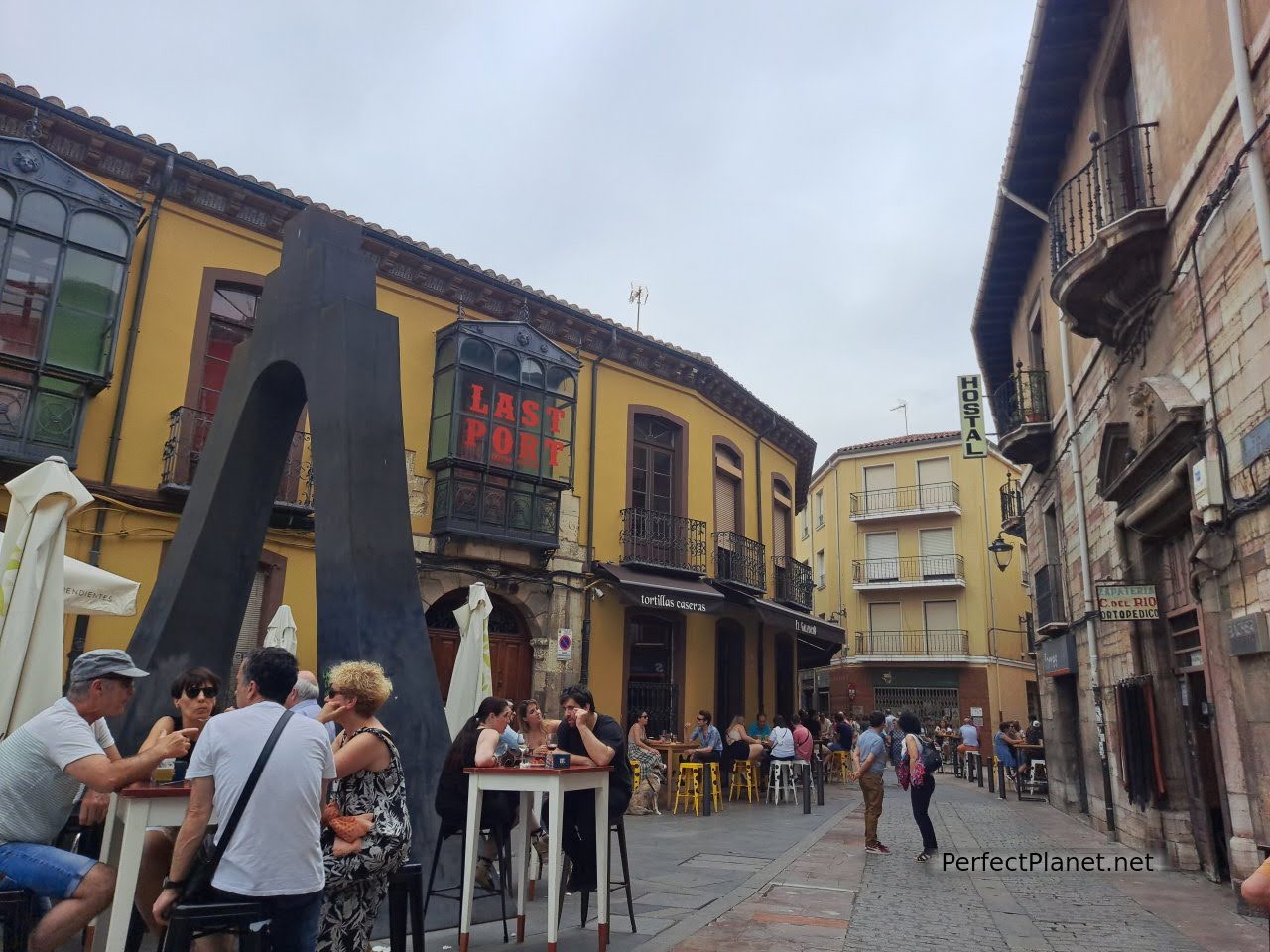
Romantic quarter
Indispensable
1. León Cathedral
In Gothic style with French influence, the Cathedral of Santa María de León stands imposingly in the Plaza de Regla. Begun in the 13th century, it was built on the ruins of ancient Roman baths.
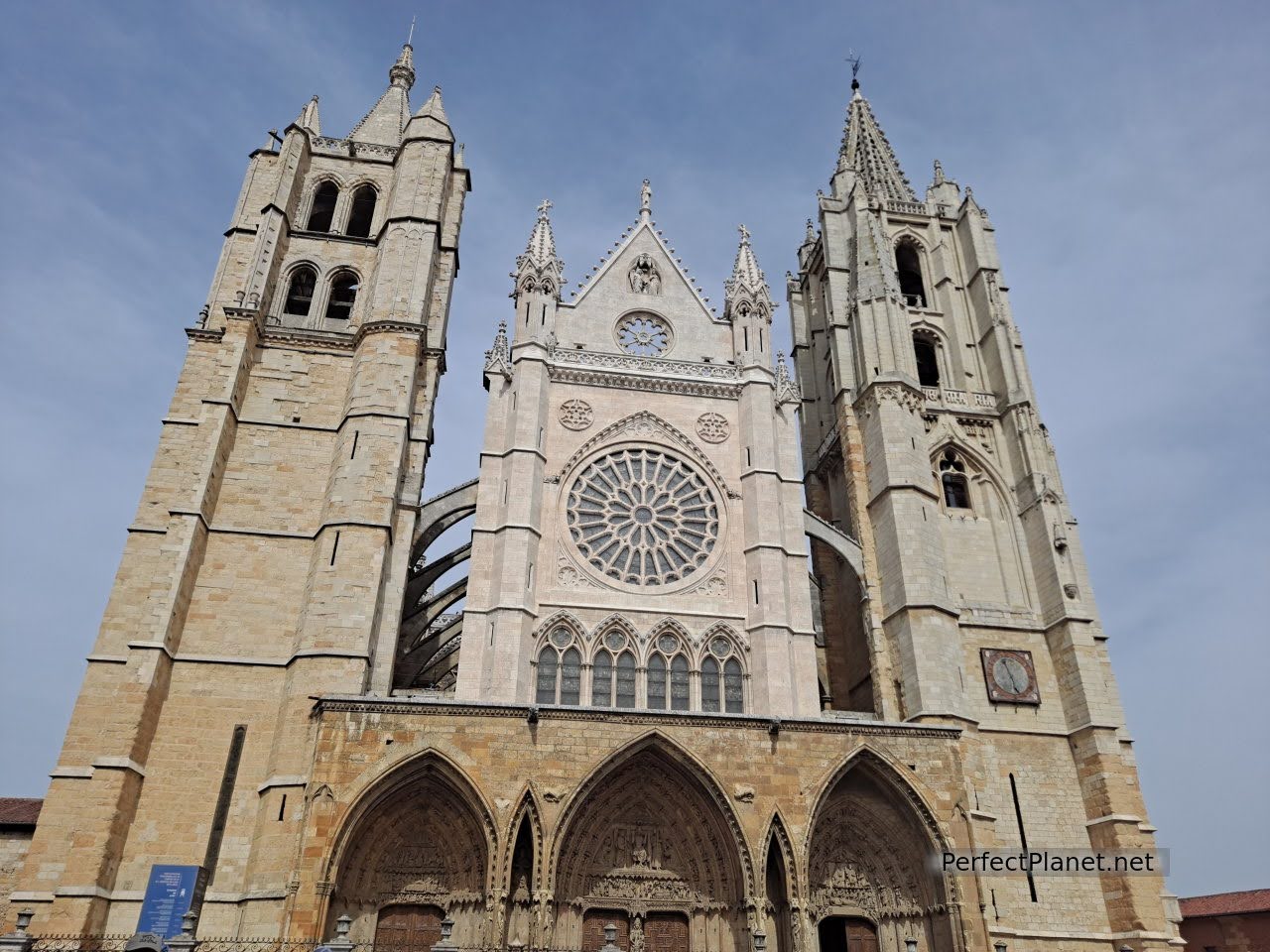
Cathedral
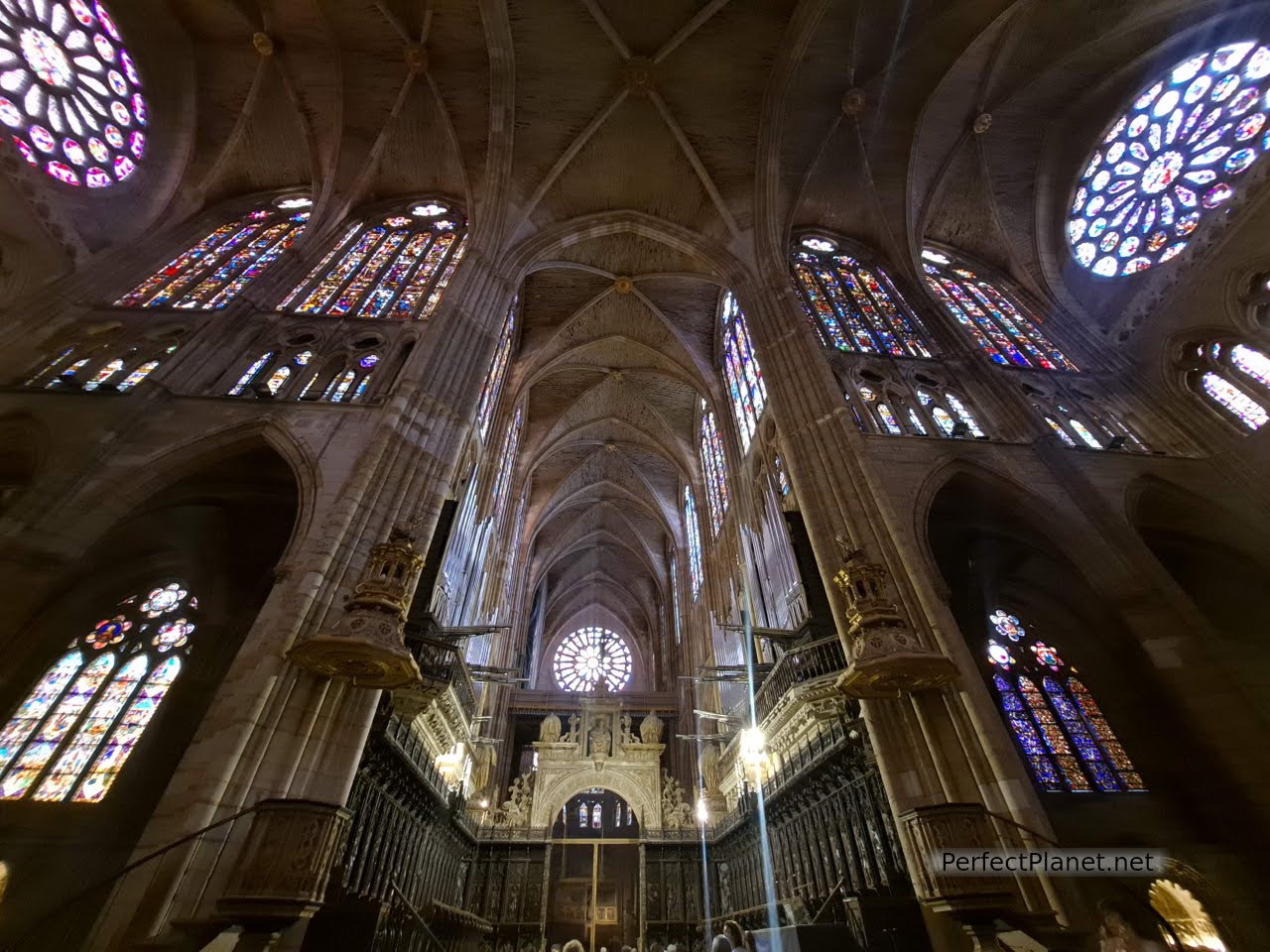
Interior Cathedral
The beauty of the exterior architecture is enhanced when you enter the interior, where the spectacular stained glass windows constitute one of the largest collections of medieval stained glass in the world. The way the light passes through the coloured glass creates a unique atmosphere, earning it the nickname of the House of Light.
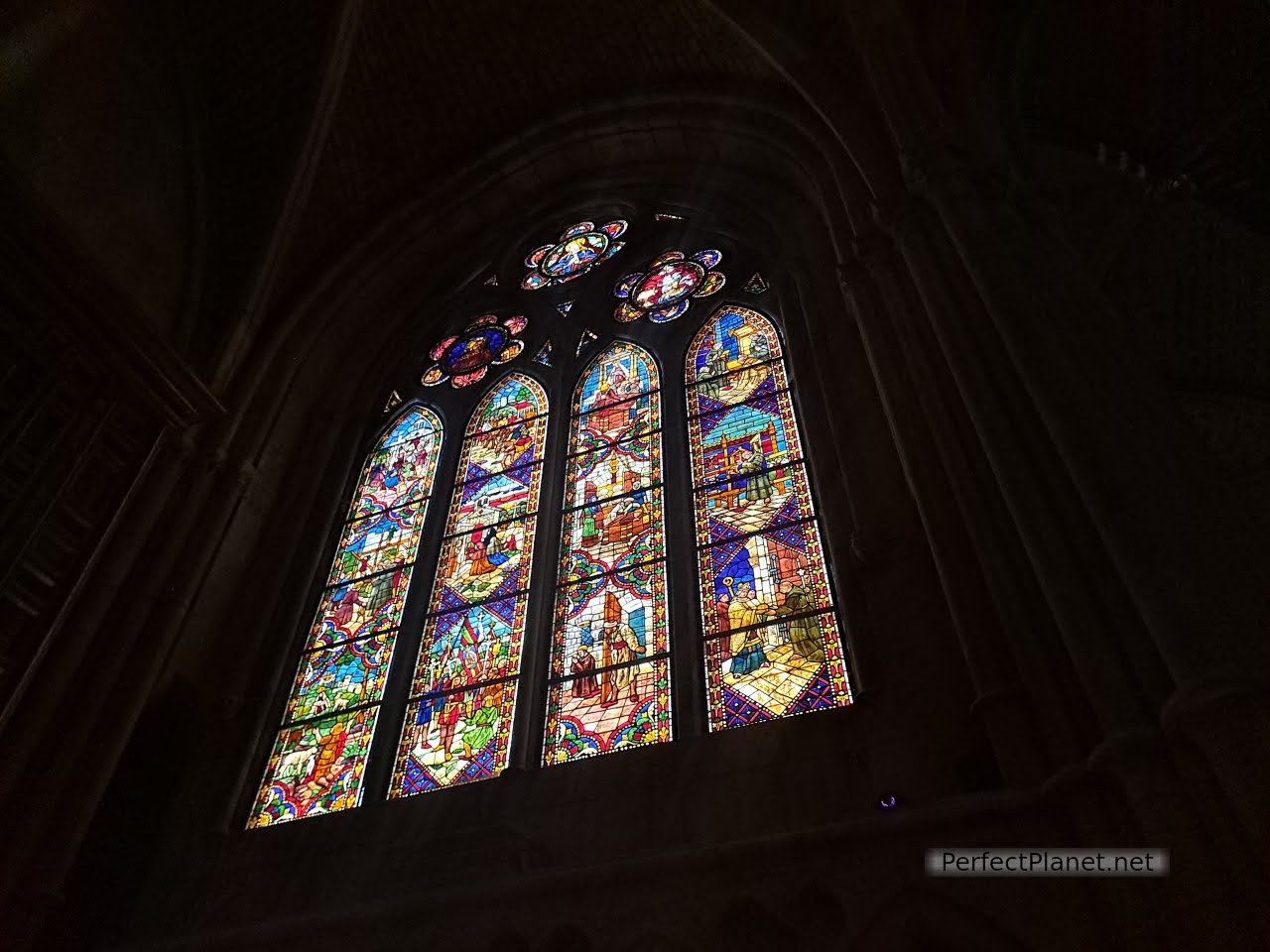
Stained glass windows
Its carved porticoes, several sepulchres, large rose windows and important sculptures such as the Vírgen Blanca and the Vírgen de la Esperanza, located in the chapels surrounding the central nave, stand out. In addition, the choir stalls are among the oldest in Spain.
Also worth mentioning is the cloister annexed to the church, which preserves the decoration of the walls with paintings and sculptures. The views from here of the spires of the Cathedral are beautiful.
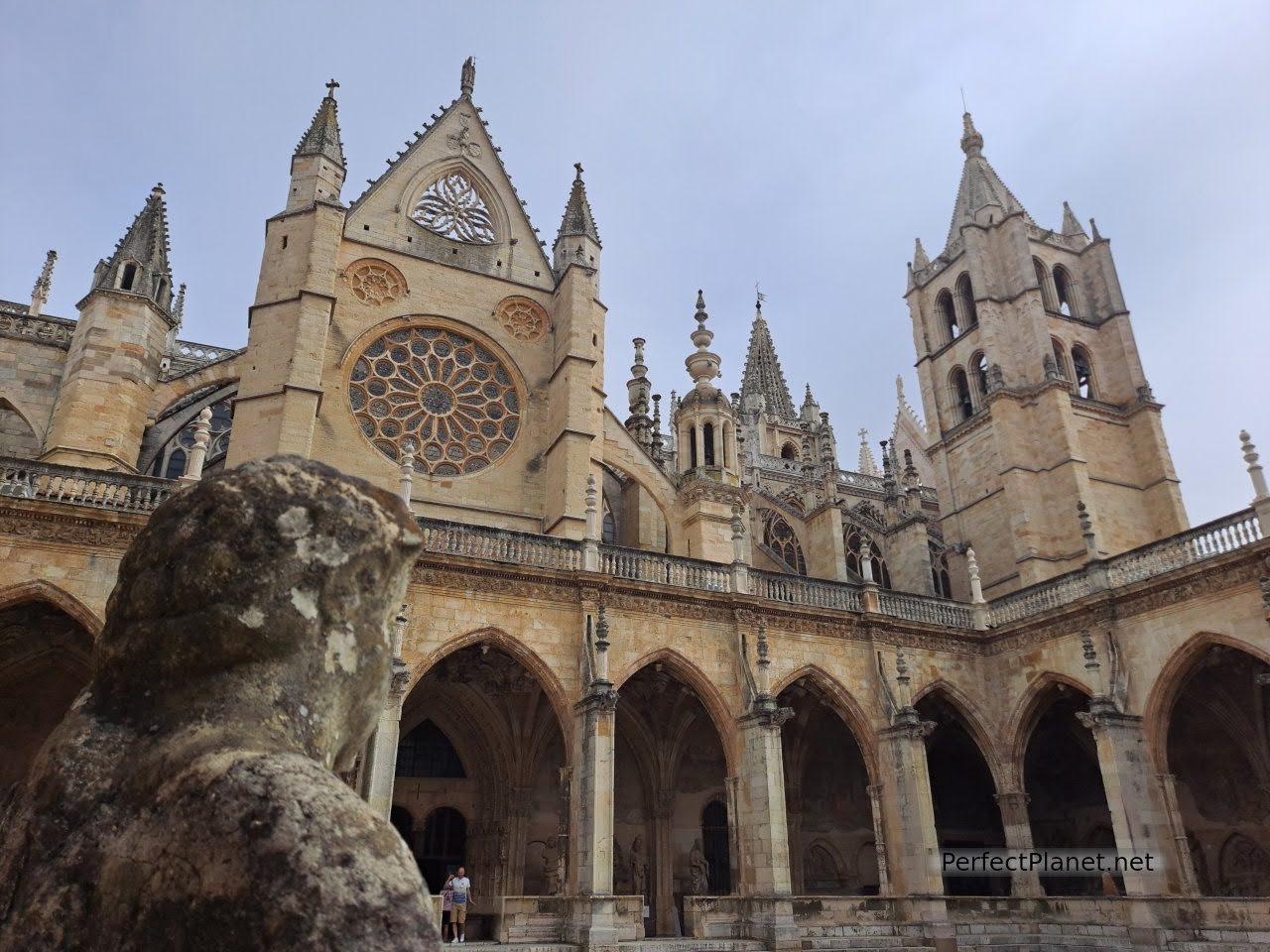
Cloister
Admission: 7€/pax, groups of more than 5 people 6€/pax. The ticket includes an audio guide that you can listen to on your mobile phone and a visit to the cloister.
2. Botines House
The work of the brilliant Antonio Gaudí, this modernist-style building currently houses a museum of Spanish artists from the 19th and 20th centuries.
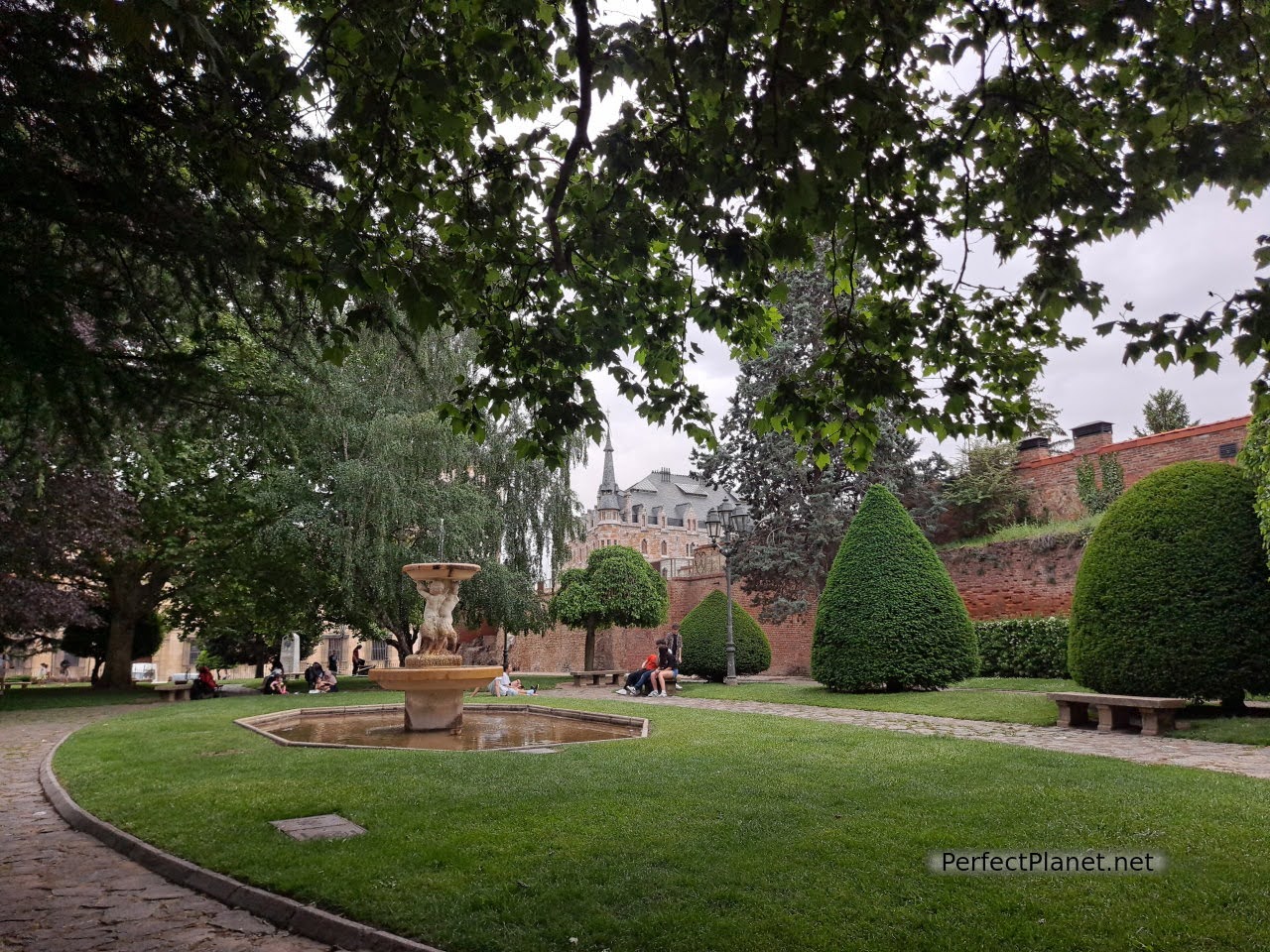
Views from the Cid Park
From the nearby El Cid park you have a beautiful picture of the Casa Botines. Admission 5€/pax.guided tour 8€/pax.
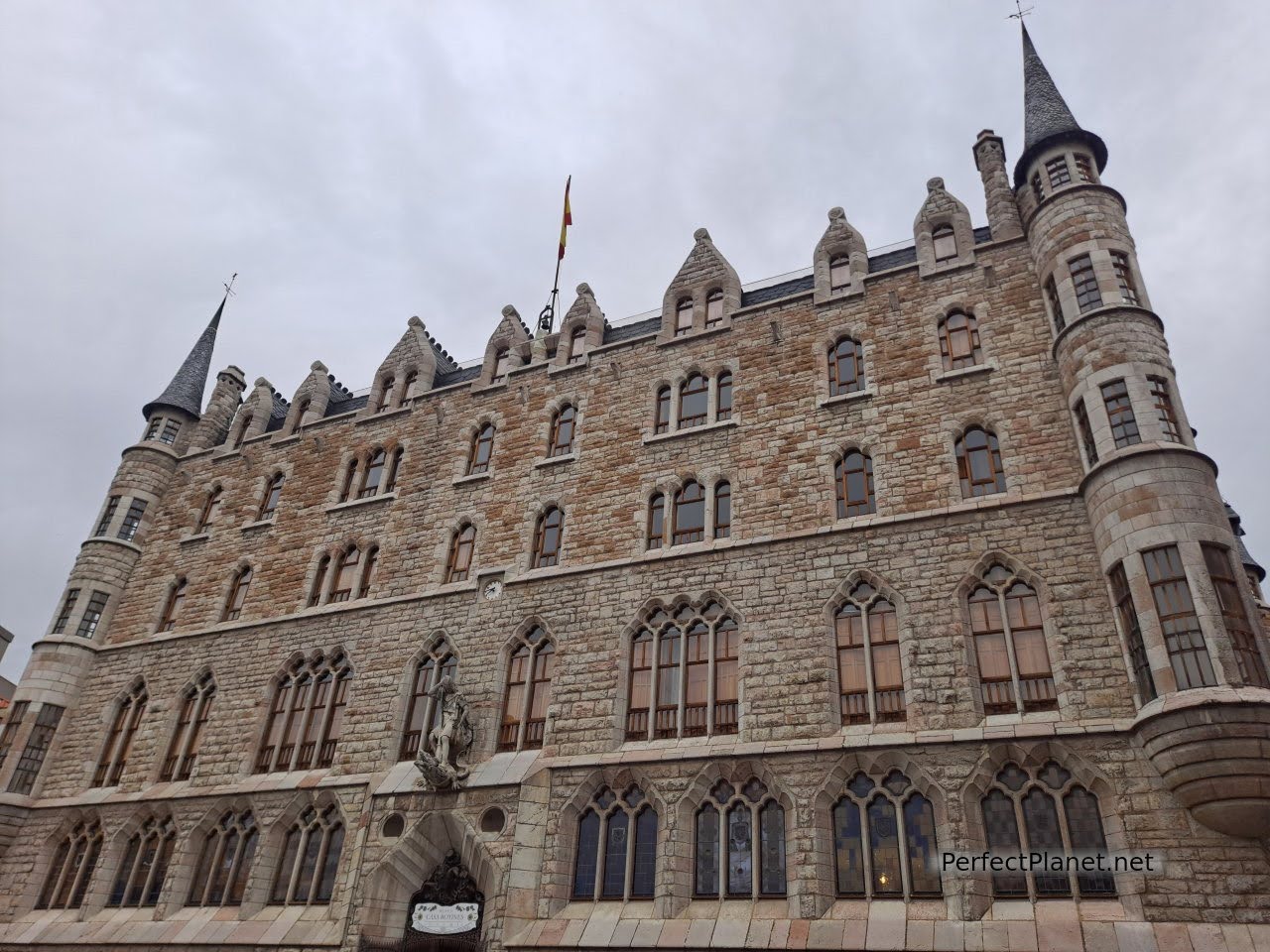
Casa Botines
3. Palace of the Guzmanes
Right next to the Casa Botines is this 16th century Renaissance palace. It is currently the seat of the Provincial Council. Inside, events such as medieval markets are held in the cloister.
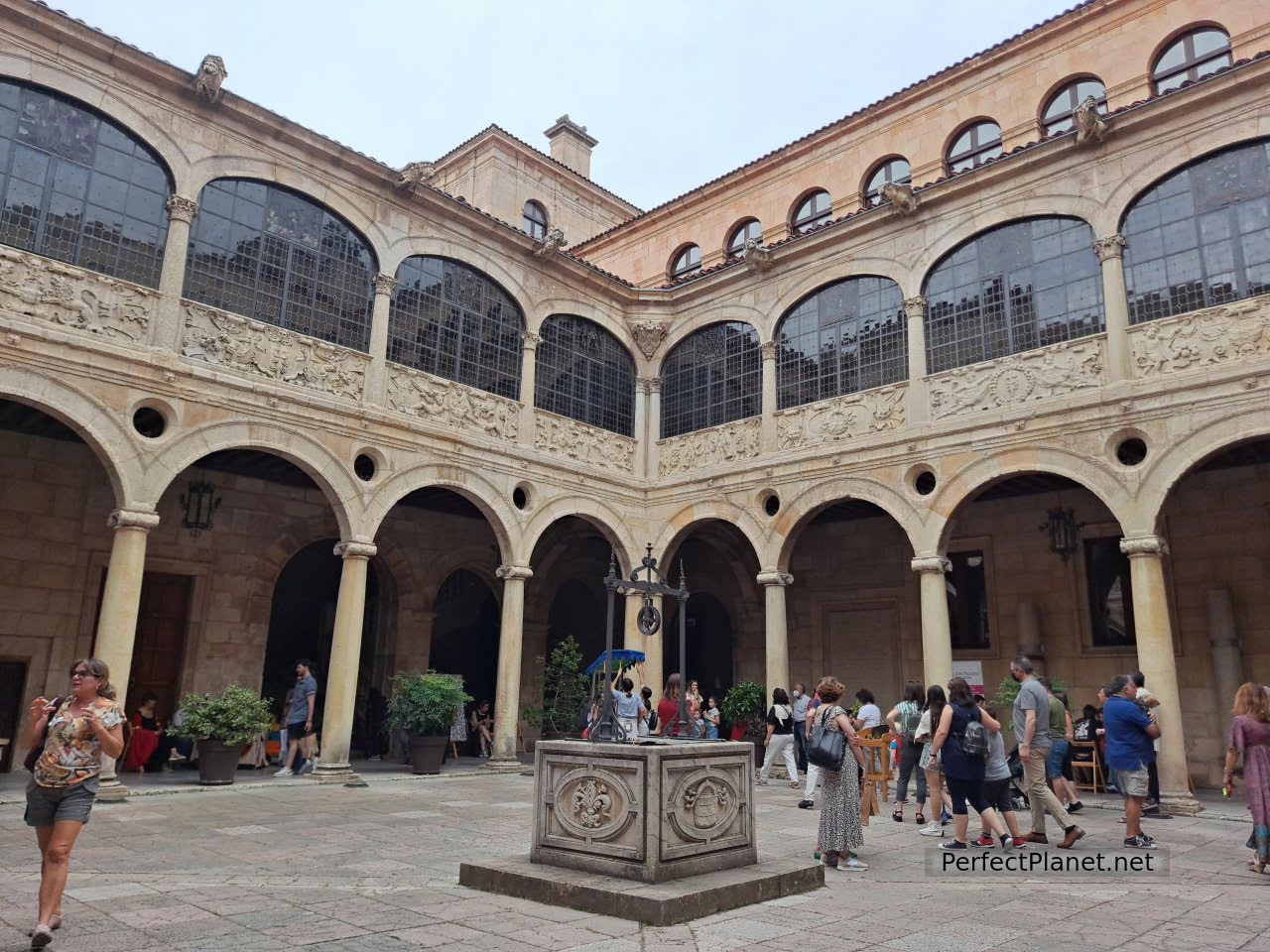
Interior Guzmanes Palace
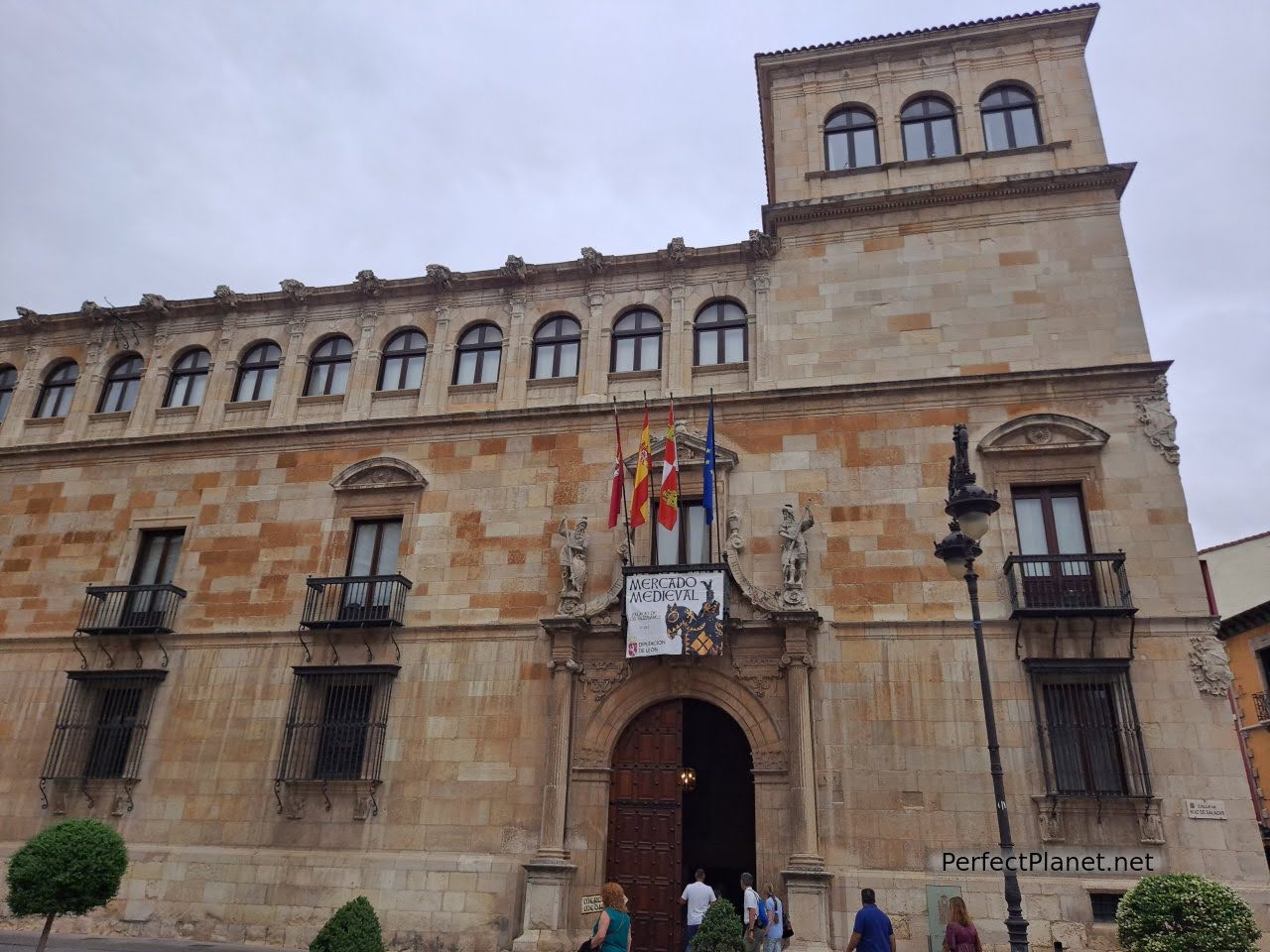
Guzmanes Palace
4. Collegiate Church of San Isidoro
Known as the Sistine Chapel of Romanesque art, the Royal Collegiate Church of San Isidoro is considered one of the most important Romanesque complexes in Europe.
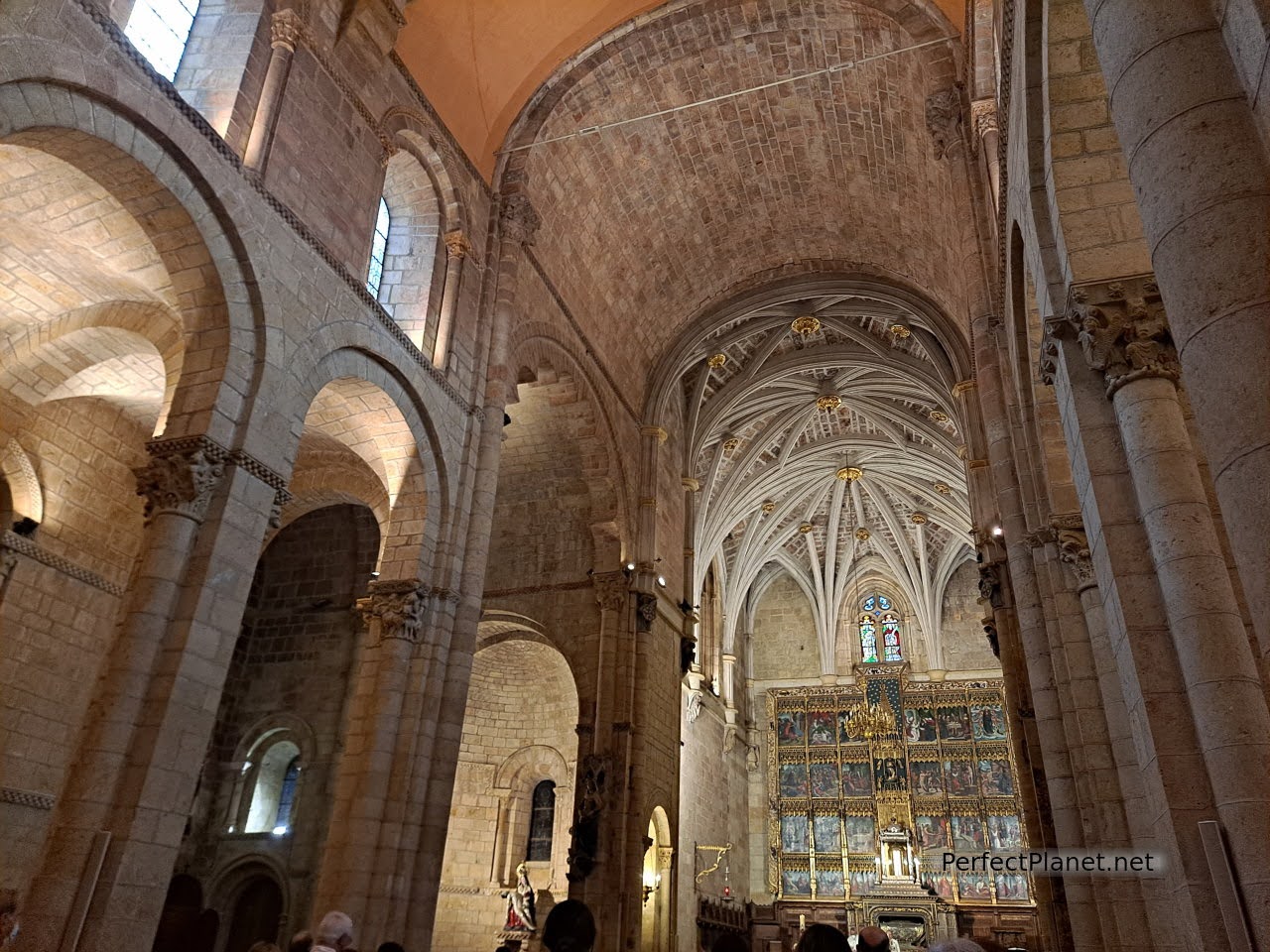
San Isidoro Church
The visit to the 11th century Basilica is free of charge and the museum is located next to it. Admission 6€/pax.
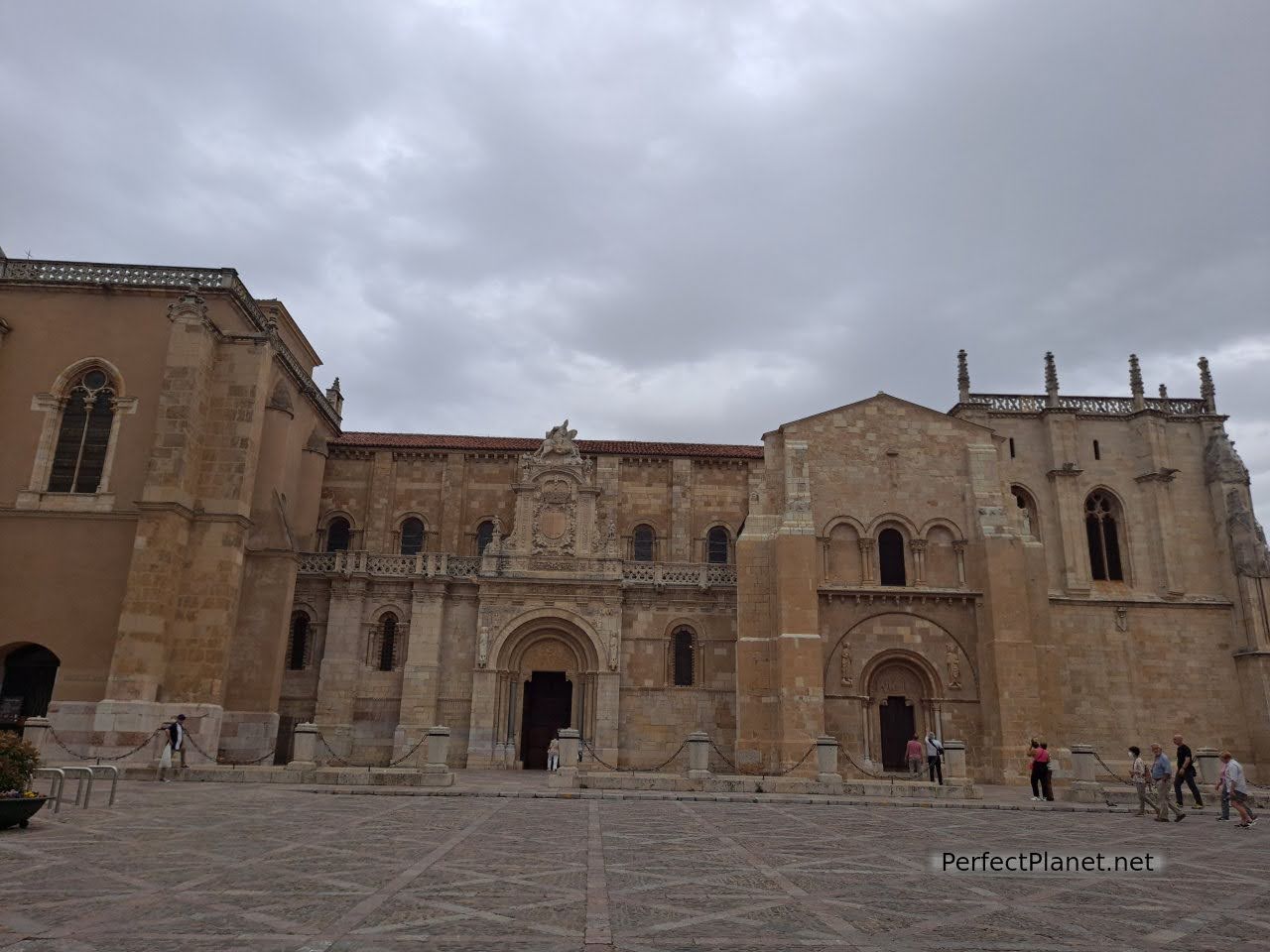
San Isidoro Church
5. Convent of San Marcos
This former convent of the Order of Santiago is one of the great jewels of Leonese architecture. It stands out for its spectacular Plateresque façade and is one of the most important monuments of the Spanish Renaissance. The adjoining church is Gothic with a beautiful cloister.
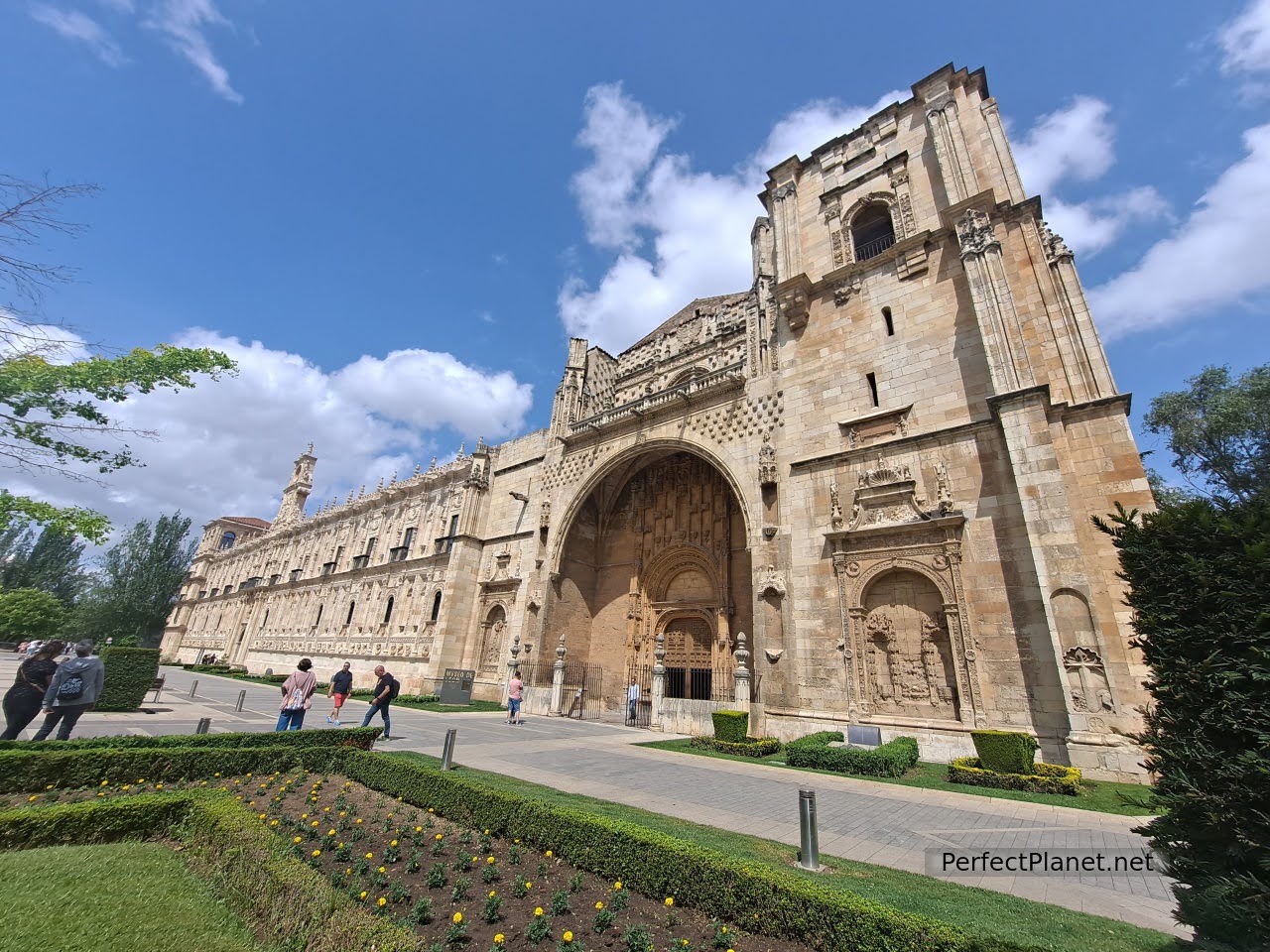
Convent of San Marcos
Built as a hostelry in the 12th century and rebuilt as a prison in the 16th century, the convent of San Marcos now houses the Parador Nacional and the headquarters of the Museum of León.
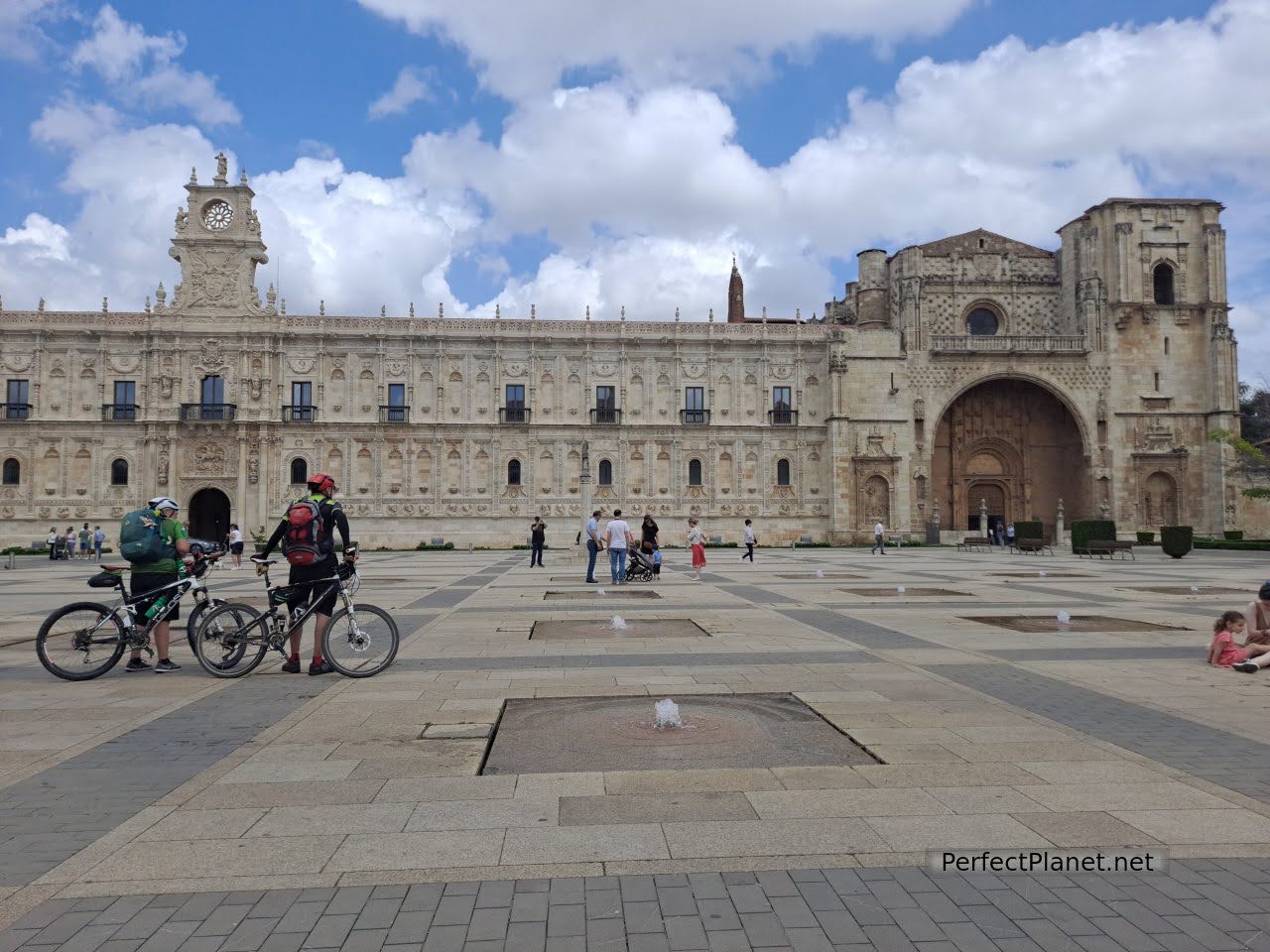
Convent of San Marcos
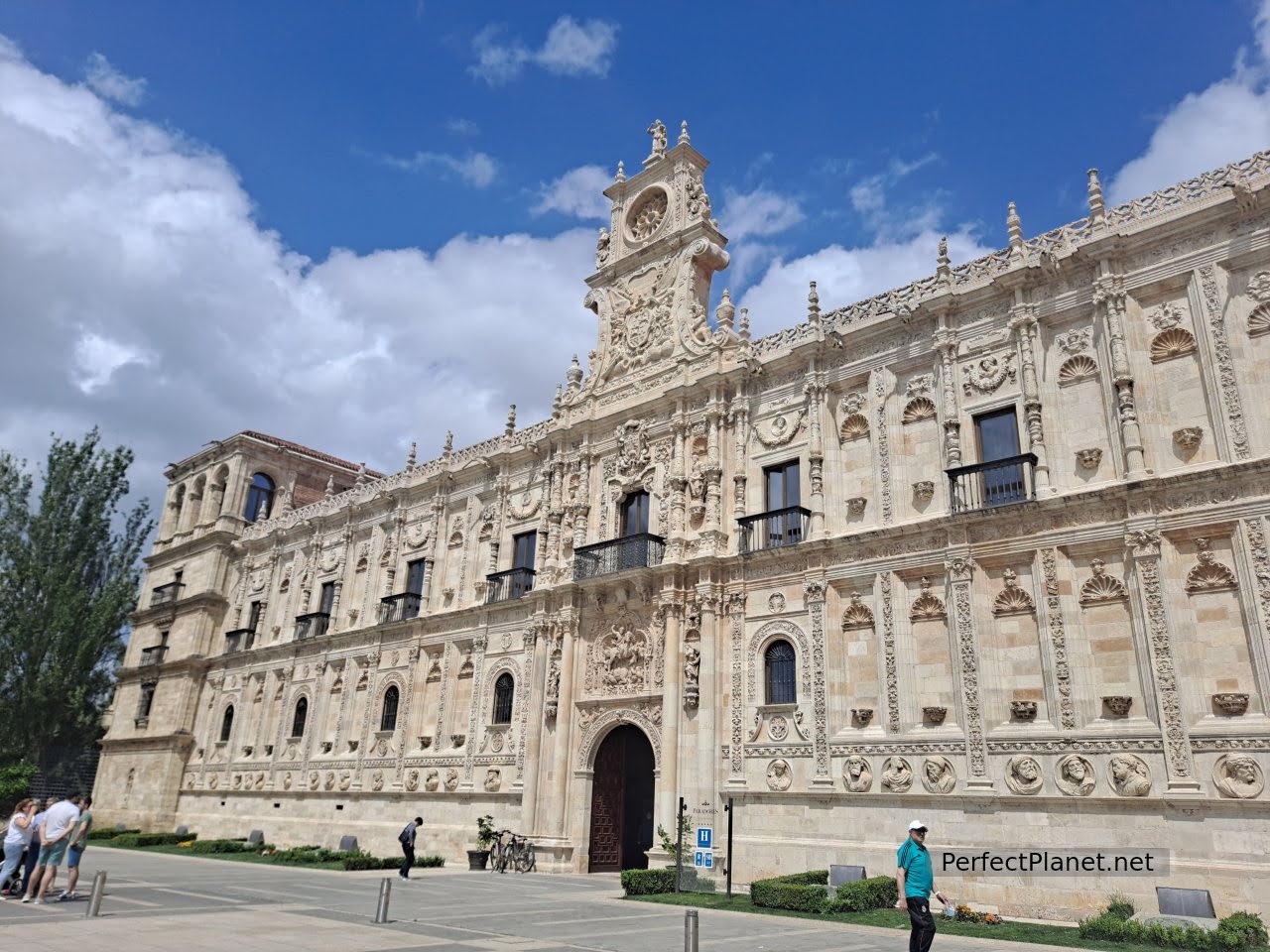
Parador
6. MUSAC
The Museo de Arte Contemporáneo de Castilla y León is located about five minutes' walk from the Convento de San Marcos.
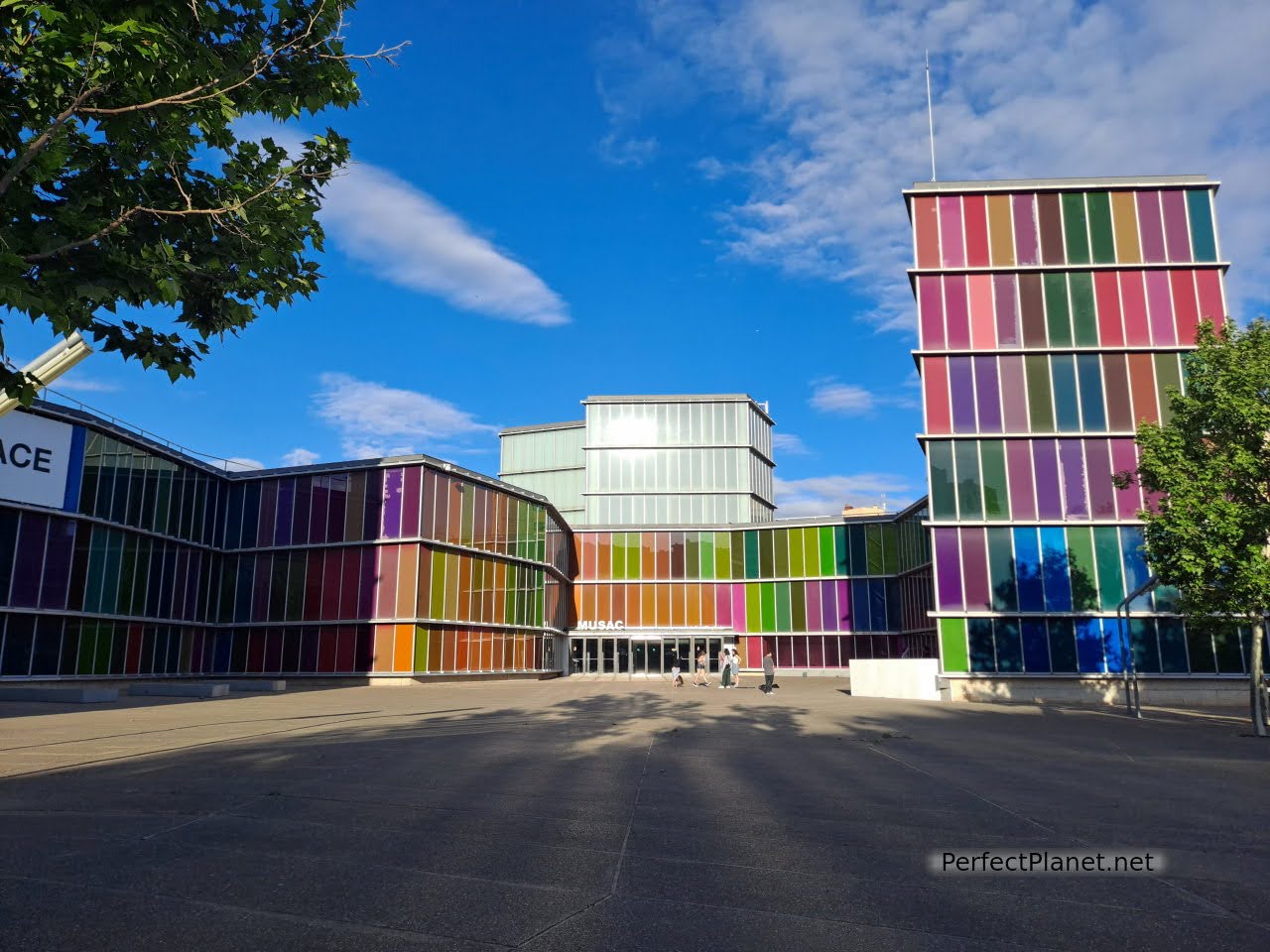
MUSAC
This colourful building, inspired by the stained glass windows of the Cathedral, houses art exhibitions from the 20th and 21st centuries. It is well worth a visit. Admission 3€/pax. Closed on Mondays.
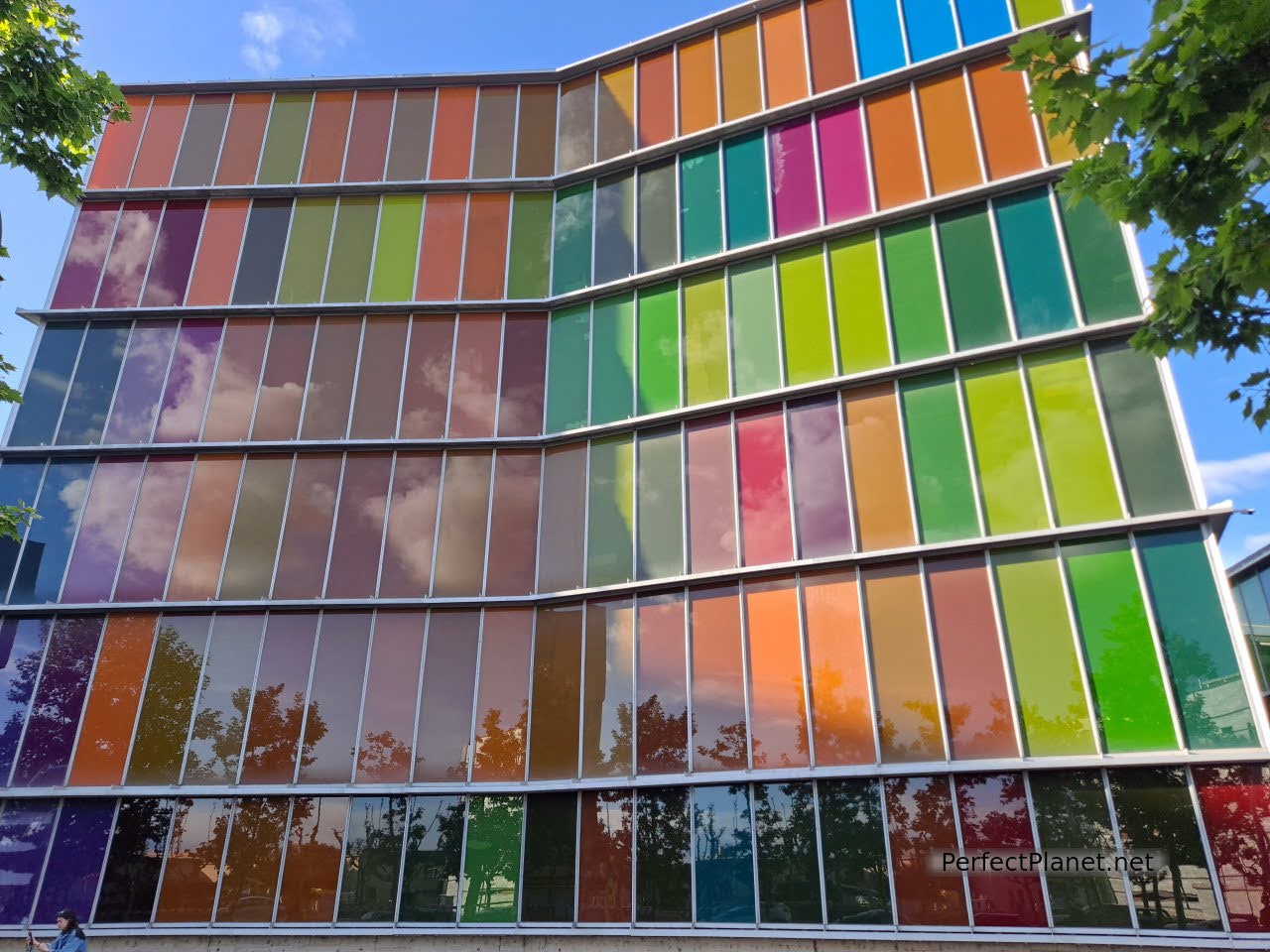
MUSAC
7. Húmedo quarter and Romántico quarter
Apart from its architecture, León stands out for its gastronomy, and the Húmedo and Romantic quarters are its main points of reference, we tell you about them here de Tapas.
8. Grain Square
Although its real name is the Plaza de Santa María del Camino, it is undoubtedly one of the most beautiful squares in León. Cobbled ground, with arcades, the stone cross, the fountain and the church of the Market make up this wonderful place.
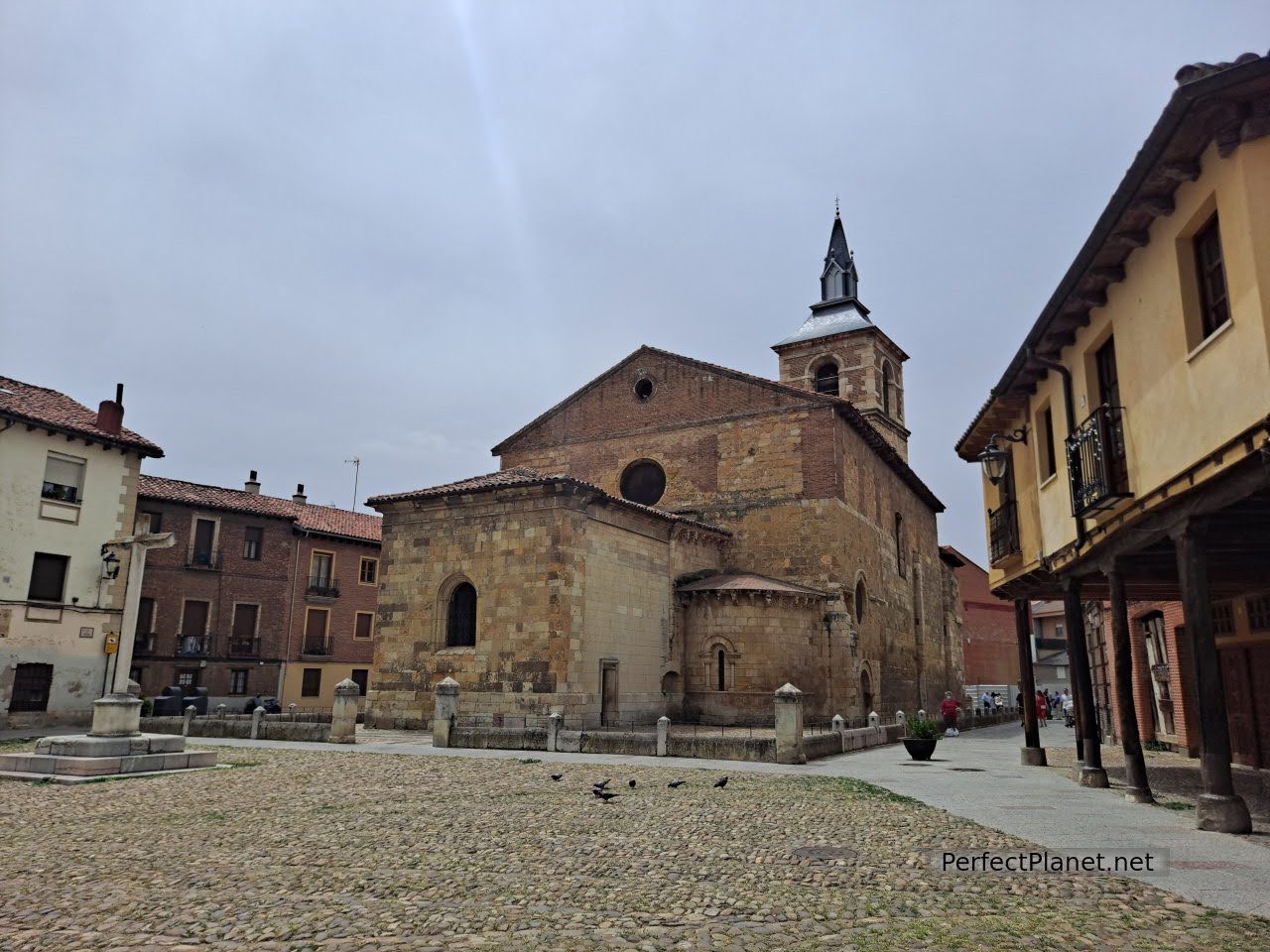
Grain Square
It dates back to the 15th century and originally served as a meeting place for local merchants.
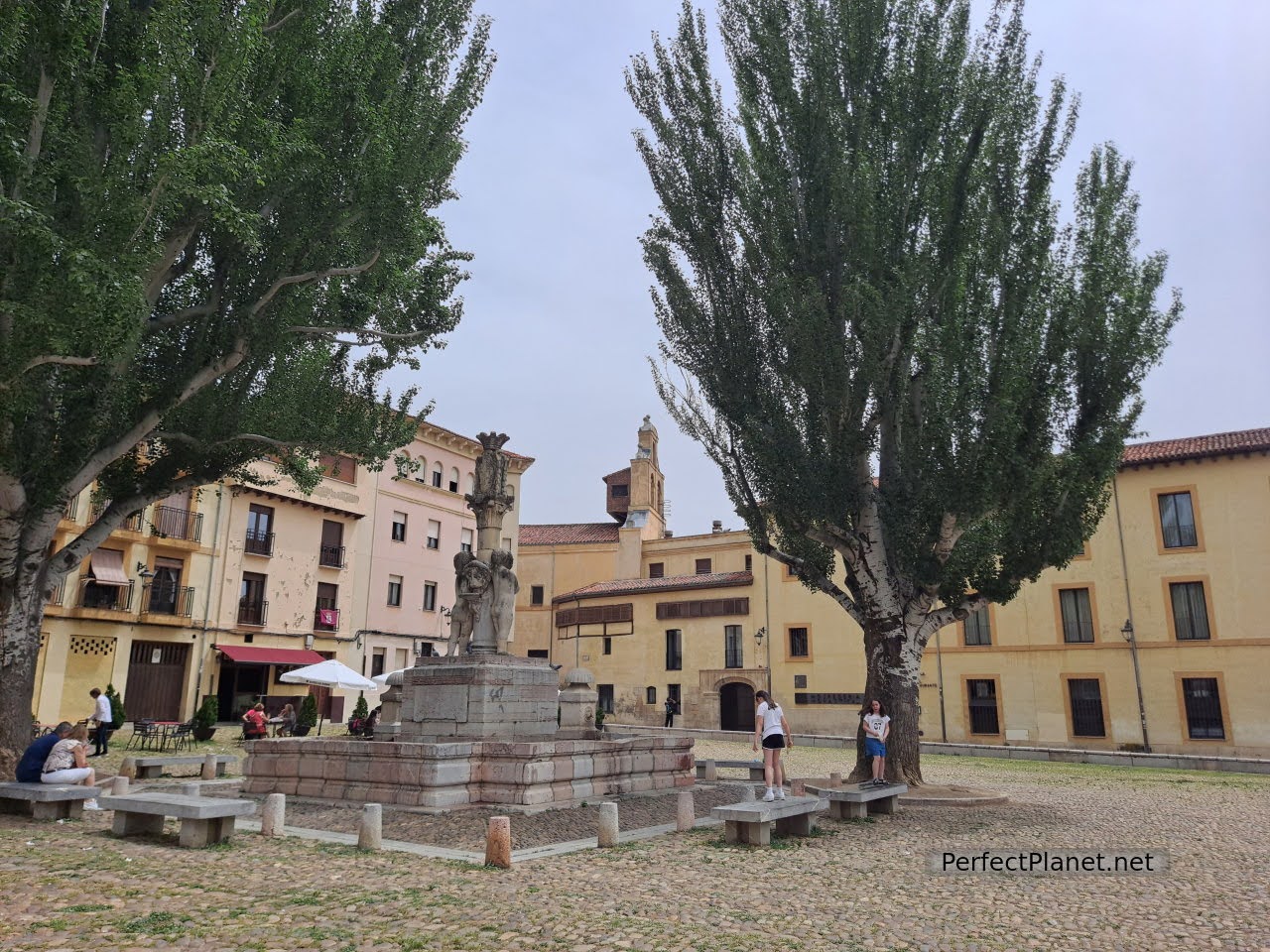
Grain Square
9. Plaza Mayor
Located in the historic centre, in the Húmedo neighbourhood, this square was one of the most important markets outside the walls in medieval times, although it also served as a place for public executions. Nowadays it is home to the Town Hall and several bars and terraces where you can enjoy tapas from León.
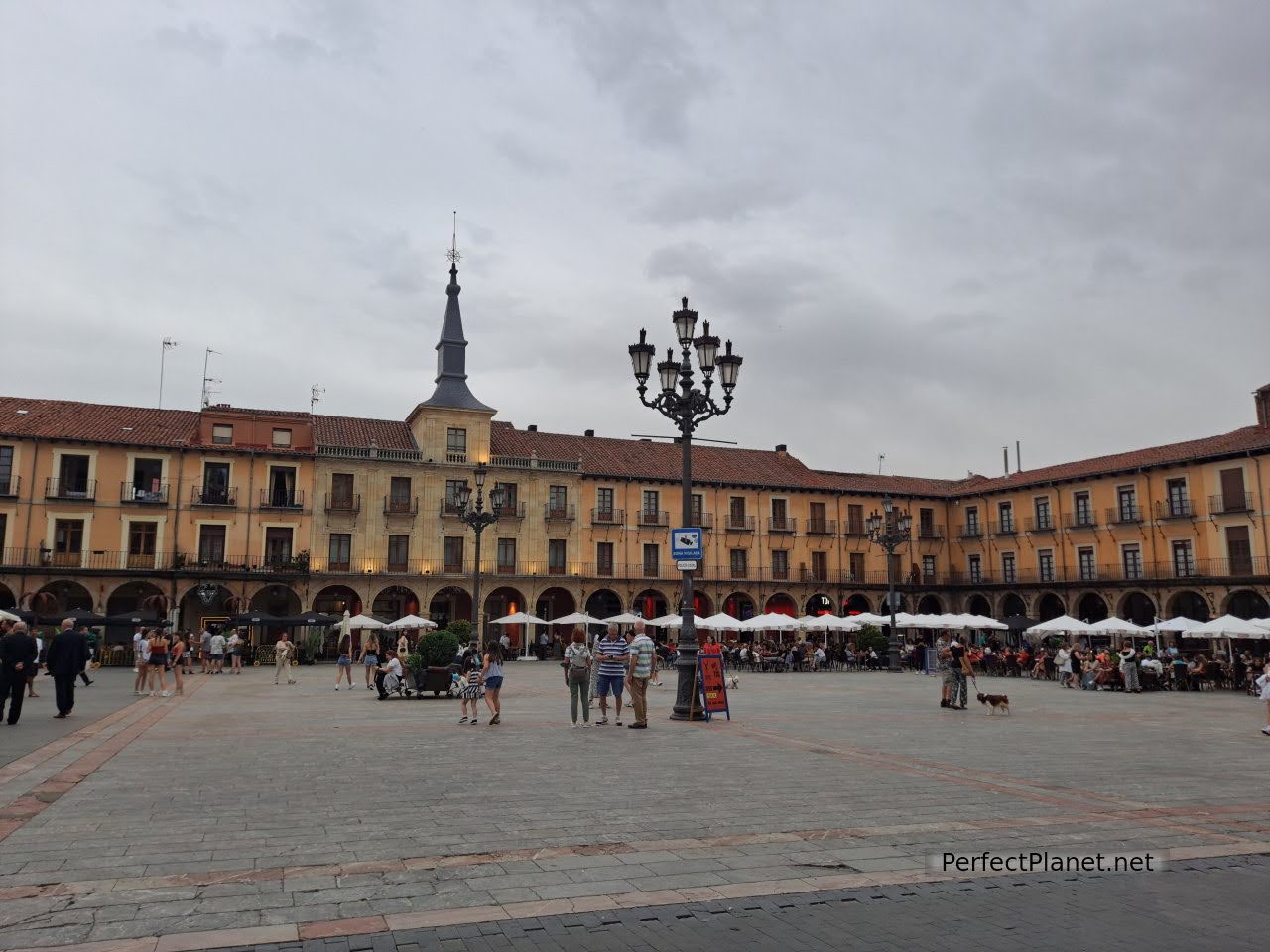
Plaza Mayor
10. City Walls
Several sections of the ancient walls that surround the old part of the city are still standing. Of Roman origin and with medieval traces, it is one of the oldest walls in Spain.
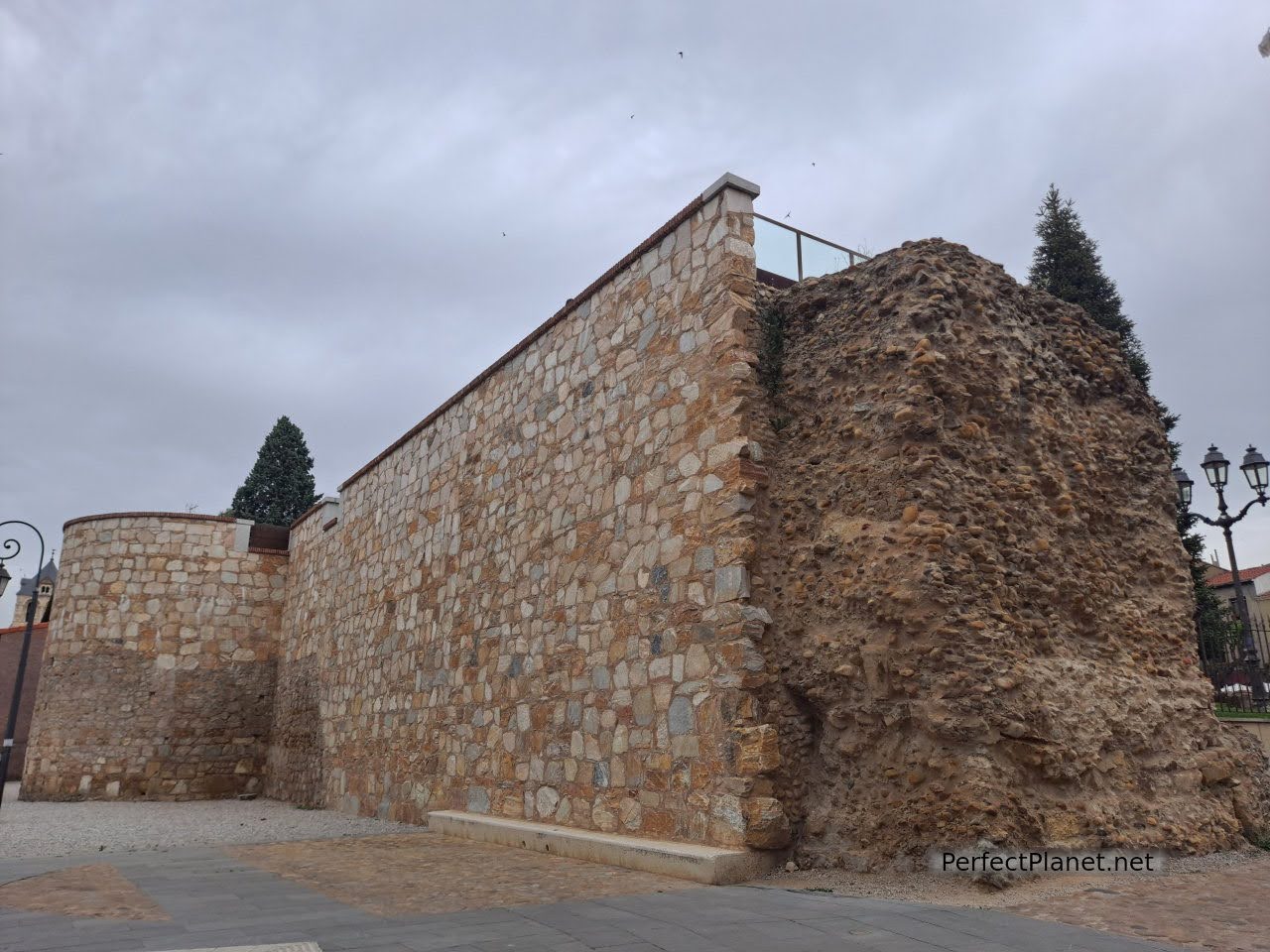
City walls
- Log in to post comments
